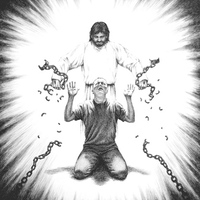Me - NOT weak but having witnessed MUCH 2 last 10 lifetime's, hence or thus, however minimally, misc distraught, traumatized (it pains me) via it's the EXTERNAL (outside of myself - Being) that affects 1's INTERNAL within, despair, depressed, misc similar emotion's, misc BUT KNOW via Holy Trinity's Counsel 2 push onward-4th best I can B-ing a SELF deny tired, old school-from the streets, frail old man that's limited - got NO USA-global capable majority of 8 billion plus SELF deny Warrior straight-hetrosexual adult alpha male-beta female army under MY Command via Holy Trinity & there's 2 MUCH evil-unholy-immoral, misc GONE ROGUE from Holy Trinity opposition (out there USA-globally, TOP-down) 2 where all I CAN DO is merely, NOT able 2 even scratch surface NOR make a dent, 'touched (do or die trying tick tock 'Time flies) delivery boy' outputting-put out of Holy Trinity's Counseled Holy intel info via usage of-with whatever tool's, misc I have available.
Posts
FB68 là một cổng game trực tuyến uy tín, nổi bật với dịch vụ cá cược đa dạng như bóng đá, đá gà, tài xỉu, game bài và baccarat. Ngoài ra, FB68 còn hấp dẫn người chơi bởi các chương trình khuyến mãi đa dạng và tỷ lệ cược cạnh tranh, mang đến trải nghiệm giải trí tuyệt vời.
Tên doanh nghiệp: FB68
Website: https://fb-68.cloud/
Địa chỉ: 275/2A Đ. Số 7, Phường 10, Gò Vấp, Hồ Chí Minh, Việt Nam
Email: fb68cloud@gmail.com
Phone: 0976888326
Post Code: 700000
#fb68cloud #fb68
https://x.com/fb68cloud2024
https://vimeo.com/fb68cloud
https://www.tumblr.com/fb68cloud2024
https://www.reddit.com/user/fb68cloud2024/
https://www.youtube.com/@fb68cloud-j2r
https://www.pinterest.com/pippentelma/
https://500px.com/p/fb68cloud?view=photos
https://www.blogger.com/profile/03130215661206040777
https://gravatar.com/fb68cloud2024
https://www.openstreetmap.org/user/FB-68%20cloud
https://www.diigo.com/profile/fb68cloud2024
https://www.pexels.com/vi-vn/@fb-68-cloud-1552033615/
https://linktr.ee/fb68cloud2024
https://www.mixcloud.com/fb68cloud2024/
https://ko-fi.com/pippentelma410gmailcom
https://about.me/fb-68
https://issuu.com/fb68cloud2024
https://circleten.org/a/300957?postTypeId=whatsNew
https://my.archdaily.com/us/@fb-68-cloud
https://wakelet.com/@fb68cloud2024
https://www.speedrun.com/users/fb68cloud2024
https://www.myminifactory.com/users/fb68cloud2024
https://coolors.co/u/fb68cloud2024
https://www.metooo.com/u/https-fb-68-cloud
https://tawk.to/fb68cloud2024
https://www.deviantart.com/fb68cloud
https://www.kickstarter.com/profile/348689403/about
https://socialtrain.stage.lithium.com/t5/user/viewprofilepage/user-id/77861
https://coub.com/fb68cloud2024
https://pantip.com/profile/8290732#topics
https://gifyu.com/pippentelma
https://subscribe.ru/author/31525040
https://hackaday.io/fb68cloud2024
https://hypothes.is/users/fb68cloud2024
https://www.quia.com/profiles/cloud502
https://os.mbed.com/users/fb68cloud2024/
https://www.designspiration.com/fb68cloud/
https://www.brownbook.net/business/52890993/fb-68-cloud/
https://fb68cloud2024.blogspot.com/2024/07/fb-68-cloud.html
https://www.facer.io/u/fb68cloud2024
https://telegra.ph/FB-68-cloud-07-18
https://experiment.com/users/fb68cloud2024
https://www.bitsdujour.com/profiles/GaS34G
https://www.metal-archives.com/users/fb68cloud2024
https://edina.bubblelife.com/community/fb68_cloud
https://8tracks.com/fb68cloud2024
https://archive.org/details/fb68cloud
https://files.fm/pippentelma410/info
https://able2know.org/user/fb68cloud2024/
https://profile.ameba.jp/me
https://influence.co/fb68cloud2024
https://data.world/fb68cloud2024
https://artistecard.com/fb68cloud2024
https://www.webwiki.com/fb-68.cloud
https://triberr.com/fb68cloud
https://forum.kryptronic.com/profile.php?section=personal&id=195808
https://discuss.machform.com/u/fb68cloud
https://skitterphoto.com/photographers/103759/fb-68-cloud
https://app.roll20.net/users/13591633/fb-68-c
https://www.diggerslist.com/6698e55e20b30/about
https://pinshape.com/users/4904077-fb68cloud2024#designs-tab-open
https://visual.ly/users/pippentelma410/portfolio
https://sites.google.com/view/fb-68cloud/home
https://www.zotero.org/settings/cv
https://anyflip.com/homepage/pbmtl
https://fb68cloud2024.hashnode.dev/fb-68-cloud
https://www.fundable.com/fb-68-cloud
https://australian-school-holidays.mn.co/members/26878461
https://forum.acronis.com/user/686215
https://chart-studio.plotly.com/~fb68cloud2024
https://www.bandlab.com/fb68cloud2024
https://magic.ly/fb68cloud
https://www.dibiz.com/pippentelma410
https://www.elzse.com/user/profile/1361292
https://www.behance.net/fb-68cloud
https://hackerone.com/fb68cloud2024?type=user
https://linklist.bio/fb68cloud2024
https://kktix.com/user/6295650
https://glitch.com/@fb68cloud
http://www.invelos.com/UserProfile.aspx?alias=fb68cloud
https://www.magcloud.com/user/fb68cloud2024
https://lu.ma/user/fb68cloud
https://www.slideserve.com/fb68cloud
https://www.instapaper.com/p/14621250
https://www.provenexpert.com/fb-68-cloud/?mode=preview
https://pubhtml5.com/homepage/vyymj/
https://www.babelcube.com/user/fb-68-cloud
https://sketchfab.com/fb68cloud
https://hubpages.com/@fb68cloud
https://www.credly.com/users/fb68cloud
https://www.mapleprimes.com/users/fb68cloud
https://pastebin.com/u/fb68cloud
https://www.threadless.com/@fb68cloud/activity
https://www.silverstripe.org/ForumMemberProfile/show/161904
https://leetcode.com/u/fb68cloud2024/
https://forums.alliedmods.net/member.php?u=378595&tab=aboutme&simple=1
https://www.walkscore.com/people/430683823735/fb-68-cloud
http://hawkee.com/profile/7318557/
https://www.niftygateway.com/@fb68cloud2024/
https://pxhere.com/en/photographer-me/4312588
https://www.reverbnation.com/fb68cloud8
https://www.creativelive.com/student/fb-68-cloud?via=accounts-freeform_2
https://forum.codeigniter.com/member.php?action=profile&uid=115294
https://doselect.com/@1d565ad617f1be2d67af0b2af
https://articledirectoryzone.com/members/fb68cloud/
https://public.tableau.com/app/profile/fb.68.cloud/vizzes
https://readthedocs.org/projects/fb-68-cloud/
https://connect.garmin.com/modern/profile/c132a5e7-ff4c-4895-9375-70bbbf573a9a
https://peatix.com/user/23116853/view
https://onlyfans.com/fb68cloud
https://band.us/band/95579234/intro
https://tupalo.com/en/users/7054322
https://guides.co/a/fb-68-cloud/fb-68-cloud
https://qiita.com/fb68cloud2024
https://hashnode.com/@fb68cloud2024
https://devpost.com/fb68cloud
https://miarroba.com/fb68cloud
https://www.scoop.it/u/pippentelma410-gmail-com
https://www.free-ebooks.net/profile/1575863/fb-68-cloud#gs.bsd4b3
https://qna.habr.com/user/fb68cloud
https://phijkchu.com/a/fb68cloud2024/video-channels
https://www.mountainproject.com/user/201874464/fb-68-cloud
https://www.mtg-forum.de/user/85483-fb68cloud2024/
https://worldcosplay.net/member/1795758
https://fliphtml5.com/homepage/pwvyx/fb-68-cloud/
https://blogfreely.net/fb68cloud2024/fb68-la-mot-cong-game-truc-tuyen-uy-tin-noi-bat-voi-dich-vu-ca-cuoc-da-dang
https://www.couchsurfing.com/users/2018756546
https://schoolido.lu/user/fb68cloud2024/
https://fileforum.com/profile/fb68cloud2024
https://www.bitchute.com/channel/qxW1EK64g3Zz
https://www.weddingbee.com/members/fb68cloud2024/#
http://vetstate.ru/forum/?PAGE_NAME=profile_view&UID=127004
https://www.pozible.com/profile/fb-68-cloud
https://myapple.pl/users/457321-fb-68-cloud
https://kumu.io/fb68cloud2024/fb-68-cloud#fb-68-cloud
https://www.inflearn.com/users/1434736
https://ameblo.jp/fb68cloud2024/entry-12860426912.html
MPO99ID termasuk salah satu situs slot online yang menyediakan link daftar login MPO99 untuk bermain slot gacor terlengkap dan terlaris dengan rtp jackpot terakurat dimuka bumi.
https://www.pastryshoescollection.com/
https://twitter.com/mpo99id
https://www.pinterest.com/99mpoi/
https://www.youtube.com/@mpoid99/about
https://gravatar.com/99mpoi
https://www.twitch.tv/99mpoid/about
https://500px.com/p/mpo99id
https://issuu.com/99mpoid
https://igli.me/Slotmpo99id
https://www.instapaper.com/p/Slotmpo99id
https://flipboard.com/@mpo992024/mpo99-s106cum6y
https://slotmpo99id.blogspot.com/2024/07/mpo99.html
https://www.blogger.com/profile/10367452130358847929
https://sites.google.com/view/indonasia/home
https://www.mixcloud.com/Slotmpo99id/
https://www.reddit.com/user/Slotmpo99id/
https://telegra.ph/mpo99-07-18
https://bitbin.it/fX1nuEKz/
https://justpaste.it/u/Slotmpo99id
https://www.pearltrees.com/slotmpo99id/item622345619
https://independent.academia.edu/idmpo99
https://www.producthunt.com/@slotmpo99id
https://wakelet.com/@Slotmpo99id
https://www.myminifactory.com/users/Slotmpo99id
https://hypothes.is/users/Slotmpo99id
https://roomstyler.com/users/slotmpo99id
https://band.us/band/95579841
https://www.metal-archives.com/users/Slotmpo99id
https://public.tableau.com/app/profile/mpo99.id/vizzes
https://link.space/@Slotmpo99id
https://circleten.org/a/301710?postTypeId=whatsNew
https://www.beatstars.com/Slotmpo99id/about
https://sketchfab.com/Slotmpo99id
https://www.slideserve.com/Slotmpo99id
https://influence.co/slotmpo99id
https://anyflip.com/homepage/oftsk#About
https://www.hahalolo.com/@66a10fec0694371ea492b341
https://www.free-ebooks.net/profile/1576804/mpo99-id#gs.cnl2y4
https://files.fm/Slotmpo99id/info
https://fileforum.com/profile/Slotmpo99id
https://hub.docker.com/u/mpoid99
https://www.multichain.com/qa/user/Slotmpo99id
https://qiita.com/Slotmpo99id
https://os.mbed.com/users/slotmpo99id/
https://www.veoh.com/users/Slotmpo99id
https://cofacts.tw/user/Slotmpo99id
https://redpah.com/profile/399972/mpo99
https://participa.tarragona.cat/profiles/Slotmpo99id/timeline
https://www.babelcube.com/user/mpo99-id
https://www.renderosity.com/users/id:1531306
https://community.m5stack.com/user/slotmpo99id
https://www.giantbomb.com/profile/slotmpo99id/
https://orcid.org/0009-0005-1724-8242
https://www.credly.com/users/slotmpo99id
https://healingxchange.ning.com/profile/mpo99
https://coub.com/slotmpo99id'>https://coub.com/slotmpo99id
https://entre-vos-mains.alsace.eu/profiles/mpo99/timeline
https://inkbunny.net/Slotmpo99id
https://pxhere.com/en/photographer/4312738
http://emseyi.com/user/Slotmpo99id
https://www.balatarin.com/users/slotmpo99id
https://globalcatalog.com/mpo99.id
https://photoclub.canadiangeographic.ca/profile/21312208
https://lifeinsys.com/user/slotmpo99id
https://community.atlassian.com/t5/user/viewprofilepage/user-id/5546691
http://planforexams.com/q2a/user/Slotmpo99id
https://www.ohay.tv/profile/Slotmpo99id
https://forum.acronis.com/user/682775
https://conseilcitoyen.rillieuxlapape.fr/profiles/mpo99/activity
https://filmow.com/usuario/slotmpo99id
http://www.apelondts.org/Activity-Feed/My-Profile/UserId/30390
http://gendou.com/user/slotmpo99id
http://users.atw.hu/animalsexforum/profile.php?mode=viewprofile&u=4747
https://definedictionarymeaning.com/user/mpo99-id
https://www.pub100s.com/members/slotmpo99id/profile/
https://retrospring.net/@Slotmpo99id
https://www.ethiovisit.com/myplace/Slotmpo99id
https://forum.lescigales.org/user131804.html
https://vocal.media/authors/mpo99
https://www.printables.com/@Slotmpo99id_2262188
https://us.enrollbusiness.com/BusinessProfile/6771906/mpo99
https://velog.io/@mpo99id/mpo99
https://loiret.staging.opensourcepolitics.eu/profiles/Slotmpo99id/activity
https://www.minecraft-servers-list.org/details/Slotmpo99id/
https://givestar.io/profile/0652ef83-43c5-4716-8a89-79770ec5f10f
https://amvnews.ru/forum/profile.php?mode=viewprofile&u=76492
https://glose.com/u/Slotmpo99id
https://www.hydroworxirrigation.com/profile/99mpoid/profile
https://cli.re/YWPqmm
https://worldcosplay.net/member/1795829
https://doodleordie.com/profile/slotmpo99id
https://www.dermandar.com/user/Slotmpo99id/
https://guides.co/g/mpo99/406675
https://forum.spider-farmer.com/members/slotmpo99id/
https://git.qoto.org/Slotmpo99id
https://nhattao.com/members/user6561651.6561651/
https://diendan.hocmai.vn/members/slotmpo99id.2712514/about
https://www.diggerslist.com/slotmpo99id/about
https://my.desktopnexus.com/Slotmpo99id/
https://vnvista.com/forums/member159011.html
https://g0v.hackmd.io/@3F8fKaP1Tem03hM55EJxnA/ByBevUIdA
https://hackmd.okfn.de/s/SyIMUUUOC
https://deadreckoninggame.com/index.php/User:Slotmpo99id
https://skitterphoto.com/photographers/103737/mpo99
https://leetcode.com/u/Slotmpo99id/
https://socialtrain.stage.lithium.com/t5/user/viewprofilepage/user-id/77860
https://vhearts.net/Slotmpo99id
https://wiki.gta-zona.ru/index.php/%D0%A3%D1%87%D0%B0%D1%81%D1%82%D0%BD%D0%B8%D0%BA:Slotmpo99id
https://barcelonadema-participa.cat/profiles/Slotmpo99id/activity
https://ekcochat.com/Slotmpo99id
https://www.hackerrank.com/profile/99mpoid
https://forums.giantitp.com/member.php?328811-Slotmpo99id
https://c8ke.com/Slotmpo99id
https://decidim.tjussana.cat/profiles/Slotmpo99id/activity
https://inbestia.com/usuarios/mpo99id2024
https://allmyfaves.com/Slotmpo99id
https://b.hatena.ne.jp/Slotmpo99id/
http://www.worldchampmambo.com/UserProfile/tabid/42/userId/389340/Default.aspx
http://delphi.larsbo.org/user/Slotmpo99id
https://www.projectnoah.org/users/99mpoid
https://shareyoursocial.com/Slotmpo99id
https://wirtube.de/a/mpo99/video-channels
https://decidim.guissona.cat/profiles/Slotmpo99id/activity
https://club.doctissimo.fr/slotmpo99id/
https://giphy.com/channel/Slotmpo99id
https://triberr.com/Slotmpo99id
https://hackerone.com/slotmpo99id?type=user
https://lichess.org/@/Slotmpo99id
https://polars.pourpres.net/user-4102
https://decidem.primariatm.ro/profiles/Slotmpo99id/activity
https://theotherboard.com/forum/index.php?/profile/68491-slotmpo99id/
https://m.wibki.com/Slotmpo99id
https://naijamp3s.com/index.php?a=profile&u=slotmpo99id
https://ask.banglahub.com.bd/user/Slotmpo99id
https://qna.habr.com/user/Slotmpo99id
https://www.foroatletismo.com/foro/members/slotmpo99id.html
https://www.outdoorproject.com/users/mpo99-id
https://community.startuptalky.com/member/813rbrgaQt
https://web.ggather.com/Slotmpo99id
https://decidim.torrelles.cat/profiles/Slotmpo99id/activity
https://samkey.org/forum/member.php?294094-Slotmpo99id
https://fortunetelleroracle.com/profile/slotmpo99id
https://www.postman.com/slotmpo99id
https://startupxplore.com/en/person/mpo99
https://ok.ru/profile/591992077450/photos
https://www.proarti.fr/profile/
https://eternagame.org/players/389823
https://www.kniterate.com/community/users/slotmpo99id/
http://tf88ac.crowdfundhq.com/users/mpo99
http://dayworkonyachts.com/author/slotmpo99id/
http://bbs.sdhuifa.com/home.php?mod=space&uid=581109
https://www.hoaxbuster.com/redacteur/Slotmpo99id
https://www.aicrowd.com/participants/slotmpo99id
https://slotmpo99id.notepin.co/
https://ioby.org/users/99mpoid862476
http://80.82.64.206/user/Slotmpo99id
https://herpesztitkaink.hu/forums/users/slotmpo99id/
https://www.tripadvisor.com.vn/Profile/mpoi2024
https://www.atlasobscura.com/users/99mpoid
https://advpr.net/Slotmpo99id
https://yamcode.com/mpo99-1519
https://thestylehitch.com/Slotmpo99id
https://www.czporadna.cz/user/Slotmpo99id
https://www.openrec.tv/user/h0q4pitpl8029vkh2cgj/about
https://land-book.com/slotmpo99id
https://xnforo.ir/members/slotmpo99id.49829/#about
https://acomics.ru/-Slotmpo99id
https://conecta.bio/Slotmpo99id
https://gitlab.aicrowd.com/Slotmpo99id
https://forum.bee-link.com/home.php?mod=space&uid=218619
https://electrodb.ro/forums/users/Slotmpo99id/
https://www.wpgmaps.com/forums/users/Slotmpo99id/
https://www.mindmeister.com/users/channel/116016471
https://www.hackster.io/Slotmpo99id
https://www.bikemap.net/en/u/slotmpo99id/
https://www.mobafire.com/profile/slotmpo99id-1160483?profilepage
https://imgcredit.xyz/slotmpo99id
https://slotmpo99id.stck.me/profile
https://boss.why3s.cc/boss/home.php?mod=space&uid=142647
https://ask.embedded-wizard.de/user/Slotmpo99id
https://cuchichi.es/author/slotmpo99id/
https://rant.li/slotmpo99id/mpo99
https://www.remotehub.com/mpo99id
https://sfx.thelazy.net/users/u/Slotmpo99id/
https://brewwiki.win/wiki/User:Slotmpo99id
https://chodaumoi247.com/members/slotmpo99id.6522/#about
https://etextpad.com/gtfzhh8emb
https://fab-chat.com/members/slotmpo99id/profile/
https://kemono.im/slotmpo99id/mpo99
https://www.anobii.com/fr/01d597e6cc43cdbd8e/profile/activity
https://www.metooo.it/u/slotmpo99id
https://zzb.bz/f9N6G
https://40th.jiuzhai.com/space-uid-2466291.html
http://molbiol.ru/forums/index.php?showuser=1367018
https://www.facer.io/u/Slotmpo99id
http://aldenfamilydentistry.com/UserProfile/tabid/57/userId/853772/Default.aspx
https://clinfowiki.win/wiki/User:Slotmpo99id
https://help.forumfree.it/?act=Profile&MID=14123051
https://zenwriting.net/slotmpo99id/mpo99
https://turkish.ava360.com/user/Slotmpo99id/
https://participa.tarragona.cat/profiles/Slotmpo99id/activity
https://www.iniuria.us/forum/member.php?453811-Slotmpo99id
https://jszst.com.cn/home.php?mod=space&uid=3881303
http://www.so0912.com/home.php?mod=space&uid=2289854
https://fairygodboss.com/users/profile/AiE8ULwK3f/mpo99
https://slidehtml5.com/homepage/pzgy#About
https://wiki.prochipovan.ru/index.php/%D0%A3%D1%87%D0%B0%D1%81%D1%82%D0%BD%D0%B8%D0%BA:Slotmpo99id
https://www.vid419.com/home.php?mod=space&uid=3388050
http://www.fanart-central.net/user/Slotmpo99id/profile
https://www.bandlab.com/slotmpo99id
https://www.typemock.com/answers/user/Slotmpo99id
https://support.mozilla.org/en-US/user/Slotmpo99id/
https://osallistu.tuusula.fi/profiles/Slotmpo99id/activity
https://www.energyplan.eu/forums/users/slotmpo99id/
https://forum.lexulous.com/user/slotmpo99id
https://wibki.com/Slotmpo99id
https://netcallvoip.com/wiki/index.php/User:Slotmpo99id
https://www.diigo.com/profile/slotmpo99id
https://quangcaoso.vn/Slotmpo99id
https://pumpyoursound.com/u/user/1445647
https://about.me/Slotmpo99id
https://www.ilcirotano.it/annunci/author/slotmpo99id/
http://freestyler.ws/user/465975/Slotmpo99id
https://starity.hu/profil/467850-slotmpo99id/
https://xtremepape.rs/members/slotmpo99id.461788/#about
https://www.mtg-forum.de/user/86268-slotmpo99i
https://clarity.fm/Slotmpo99id
https://linkmix.co/24803620
https://thearticlesdirectory.co.uk/members/99mpoid/
https://list.ly/99mpoid/lists
https://www.webwiki.com/https://www.pastryshoescollection.com/
https://gitlab.vuhdo.io/Slotmpo99id
https://www.magcloud.com/user/slotmpo99id
https://www.telix.pl/profile/Slotmpo99id/
https://hukukevi.net/user/Slotmpo99id
https://www.floodzonebrewery.com/profile/Slotmpo99id/profile
https://coub.com/slotmpo99id'>https://coub.com/slotmpo99id
https://discuss.machform.com/settings
https://republic.com/@mpo-id
https://australian-school-holidays.mn.co/members/26842249
https://bio.link/slotmpo99id
https://v.gd/KazL1A
https://help.orrs.de/user/Slotmpo99id
https://developer.tobii.com/community-forums/members/slotmpo99id/
https://kaeuchi.jp/forums/users/Slotmpo99id/
https://www.dnnsoftware.com/activity-feed/my-profile/userid/3205936
https://www.giveawayoftheday.com/forums/profile/204235
https://regionalhilfesozial.mn.co/members/26842916
https://www.pubpub.org/user/mpo99-id
https://www.elephantjournal.com/profile/99mpoid/
https://speakerdeck.com/slotmpo99id
https://www.allsquaregolf.com/golf-users/mpo-id
https://jobs.siliconflorist.com/employers/3203675-mpo99
https://pixelfed.de/i/web/profile/721750847717597549
https://www.recentstatus.com/Slotmpo99id
https://www.bmw-sg.com/forums/members/slotmpo99id.91283/#about
https://codepen.io/Slotmpo99id
https://communities.leviton.com/members/slotmpo99id.4867/#about
https://www.2000fun.com/home-space-uid-4820229-do-profile-view-me.html
https://gitlab.com/Slotmpo99id
https://participez.perigueux.fr/profiles/Slotmpo99id/activity
https://bitspower.com/support/user/Slotmpo99id
https://decidim.derechoaljuego.digital/profiles/Slotmpo99id/activity
https://participation.lillemetropole.fr/profiles/slotmpo99id/activity
https://forum.spacedesk.net/forums/users/slotmpo99id/
https://codeberg.org/Slotmpo99id
https://participate.oidp.net/profiles/Slotmpo99id/activity
https://participa.economiasocialcatalunya.cat/profiles/Slotmpo99id/activity
https://forum.ljubavni-oglasnik.net/members/slotmpo99id.44517/#about
https://dialog.eslov.se/profiles/Slotmpo99id/activity
https://shenasname.ir/ask/user/Slotmpo99id
https://participa.aytoreinosa.es/profiles/Slotmpo99id/activity
https://edina.bubblelife.com/community/mpo99
https://chimcanhviet.vn/forum/members/slotmpo99id.175772/
https://hedgedoc.eclair.ec-lyon.fr/s/wghCT1X-k
https://pad.stuve.uni-ulm.de/s/ExIZcjJkU
https://www.hulkshare.com/Slotmpo99id
https://transfur.com/Users/slotmpo99id
https://www.capsulink.com/YWPqmm+
https://rukum.kejati-aceh.go.id/user/Slotmpo99id
https://openlibrary.org/people/slotmpo99id
https://pins.schuttrange.lu/profiles/Slotmpo99id/activity
https://www.webmastersun.com/members/slotmpo99id.96461/#about
https://www.unitymix.com/Slotmpo99id
https://comunidad.conocimientolibre.ec/profiles/Slotmpo99id/activity?locale=en
https://decide.enguera.es/profiles/Slotmpo99id/activity
https://decidim.cunit.cat/profiles/Slotmpo99id/activity?locale=es
https://participation.bordeaux.fr/profiles/mpo99/activity
https://decidim.pontault-combault.fr/profiles/Slotmpo99id/activity
https://justnock.com/Slotmpo99id
https://pika-network.net/members/slotmpo99id.318375/#about
https://ww3.lectulandia.co/foros/users/slotmpo99id/
https://forum.ee/u115658/mpo99/
https://hackaday.io/Slotmpo99id
https://magic.ly/mpo99id_
https://vjudge.net/user/Slotmpo99id
https://abetterindustrial.com/author/slotmpo99id/
https://hcgdietinfo.com/hcgdietforums/members/slotmpo99id/
https://community.hodinkee.com/members/Slotmpo99id
https://soundcloud.com/slotmpo99id
https://www.algebra.com/tutors/aboutme.mpl?userid=Slotmpo99id
http://dtan.thaiembassy.de/uncategorized/2562/?mingleforumaction=profile&id=199868
https://monopinion.namur.be/profiles/Slotmpo99id/activity
https://atelierdevosidees.loiret.fr/profiles/mpo99/activity
https://figshare.com/authors/mpo99_id/19215403
https://hedgedoc.digillab.uni-augsburg.de/s/7cpx_X3N6
https://sarmato.partecipa.online/profiles/Slotmpo99id/activity?locale=en
https://helpfulhub.com/user/Slotmpo99id
https://ask.rwnq-alhaya.com/user/Slotmpo99id
https://qa.laodongzu.com/?qa=user/Slotmpo99id
https://www.deviantart.com/slotmpo99id
https://community.windy.com/user/slotmpo99id
https://slotmpo99id.shopinfo.jp/posts/54747342
https://slotmpo99id.localinfo.jp/posts/54747370
https://slotmpo99id.themedia.jp/posts/54747408
https://www.bricklink.com/aboutMe.asp?u=Slotmpo99id
https://app.net/profile/Slotmpo99id
https://slotmpo99id.theblog.me/posts/54747455
https://blogfreely.net/mpo99id/mpo99
https://forum.epicbrowser.com/profile.php?id=42134
https://uxfol.io/88ae75ab
https://slotmpo99id.gallery.ru/
https://www.webwiki.co.uk/https://www.pastryshoescollection.com/
https://www.webwiki.it/https://www.pastryshoescollection.com/
https://jali.me/Slotmpo99id
https://able2know.org/user/slotmpo99id/
https://www.jqwidgets.com/community/users/slotmpo99id/
https://www.flyingsolo.com.au/members/slotmpo99id/profile/
https://mxsponsor.com/riders/mpo99-id
https://www.espace-recettes.fr/profile/slotmpo99id/666699
https://demo.wowonder.com/Slotmpo99id
https://www.vevioz.com/Slotmpo99id
https://designaddict.com/community/profile/slotmpo99id/
https://linksome.me/Slotmpo99id/
https://makeprojects.com/profile/Slotmpo99id
https://iglinks.io/99mpoid-am4
https://www.australia-australie.com/membres/slotmpo99id/profile/
https://www.bookemon.com/member-home/slotmpo99id/1061289
https://comiko.net/u/2119521-slotmpo99id
https://mpo99id.notepin.co/
https://www.babyweb.cz/uzivatele/slotmpo99id
https://lookingforclan.com/user/slotmpo99id
https://www.bondhuplus.com/Slotmpo99id
https://forum.veriagi.com/profile.php?id=1071707
https://webranksite.com/author/mpo99-id-143626/
http://frankstout.com/UserProfile/tabid/42/userId/74711/Default.aspx
https://zbato.com/user/2119521/Slotmpo99id
https://www.jumpinsport.com/users/mpo99id
https://forum.oceandatalab.com/user-5466.html
https://trove.nla.gov.au/userProfile/user/user:public:mpo99id/about
https://forum.enscape3d.com/wcf/index.php?user/84081-mpo99id/
https://findaspring.org/members/mpo99id/
https://www.claimajob.com/profiles/5008321-mpo99-id
Videos
Welcome to The Daily Wrap Up, a concise show dedicated to bringing you the most relevant independent news, as we see it, from the last 24 hours.
All Video Source Links Can Be Found Here At The Last American Vagabond: https://www.thelastamericanvagabond.com/gaza-death-famine-school-bombing
Want to send a check to support TLAV, or just words of encouragement?
Use our new P.O. box:
Ryan Cristian
1113 Murfreesboro Rd. Ste 106-146
Franklin, Tn 37064
Get TLAV Apparel:
https://truthclothing.io/collections/tlav
https://tlavfreespeech.itemorder.com/shop/home/
SAVE TLAV Campaign:
https://www.givesendgo.com/SaveTLAV
Like What You See? Help Us Stay People Funded:
https://www.thelastamericanvagabond.com/donations/donation-form/
https://www.spotfund.com/story/3690ba65-c20e-4b09-adf1-013c27d6488d
https://www.paychute.com/c/b7c68a5b-d437-444c-973b-e0413a5e07c3
https://www.subscribestar.com/the-last-american-vagabond
https://cash.app/$TLAVagabond
https://www.buymeacoffee.com/tlavagabond
https://tlavagabond.substack.com/
Bitcoin Donations: 3HybuDuvH4x5uJHemgc7EW4ms2nz3F8Gah
Ethereum Donations: 0x5e68B8984d9D8167dAf890588a7037Ae6Cc87d4b
Litecoin Donations: MX3T2kYvzfD4mNS4VNSyXFgY4abhUJC5ff
Bitcoin Cash Donations: qqsef23980qu5nlk2dj7s7ezwedl4fmy2gl2mxp9dp
Support The Last American Vagabond by Subscribing here:
http://www.feedblitz.com/f/?Sub=906867
Ryan Cristián’s Objectivity Course:
https://marketplace.autonomyagora.com/objective-research
The Last American Vagabond Links:
Sovern: https://sovren.media/u/tlavagabond/
Rumble: https://rumble.com/user/TheLastAmericanVagabond
Odysee: https://odysee.com/@TLAVagabond:5
Rokfin: https://www.rokfin.com/TLAVagabond
Minds: https://www.minds.com/TLAVagabond
Bitchute: https://www.bitchute.com/channel/24yVcta8zEjY/
Telegram: https://t.me/TLAVagabond
VK: https://vk.com/id504366611
Twitter: https://twitter.com/TLAVagabond
Instagram: https://www.instagram.com/the_last_american_vagabond/
TikTok: https://www.tiktok.com/@thelastamericanvagabond
Getter: https://gettr.com/user/tlavagabond
TruthSocial: https://truthsocial.com/@TLAVagabond
Locals: https://thelastamericanvagabond.locals.com/
Facebook: https://www.facebook.com/Vagabond-Censored-103475109010293/
Memo: https://memo.cash/profile/1Np4Z2d25RSsQi99gKhf2cd5CAwN57jk13
MeWe: https://mewe.com/profile/5bcfb5d2a5f4e5420d7d5a2f
BlueSky: https://bsky.app/profile/tlavagabond.bsky.social
#TLAVPirateStreams #TheDailyWrapUp #TheLastAmericanVagabond
"Copyright Disclaimer Under Section 107 of the Copyright Act 1976, allowance is made for "fair use" for purposes such as criticism, comment, news reporting, teaching, scholarship, and research. Fair use is a use permitted by copyright statute that might otherwise be infringing. Non-profit, educational or personal use tips the balance in favor of fair use.”
I recently joined social media commentator and high school teacher Will Reusch on his Cylinder Radio Podcast to talk about CBDCs, Anarcho capitalism and the only legitimate solution to the police violence epidemic, privatization.
Full Interview Here: https://www.youtube.com/watch?v=wSzxkC70wL8
Welcome to The Daily Wrap Up, a concise show dedicated to bringing you the most relevant independent news, as we see it, from the last 24 hours.
All Video Source Links Can Be Found Here At The Last American Vagabond: https://www.thelastamericanvagabond.com/israel-rape-image-un-school-bombed
Want to send a check to support TLAV, or just words of encouragement?
Use our new P.O. box:
Ryan Cristian
1113 Murfreesboro Rd. Ste 106-146
Franklin, Tn 37064
Get TLAV Apparel:
https://truthclothing.io/collections/tlav
https://tlavfreespeech.itemorder.com/shop/home/
Support TLAV through Autonomy:
Join Autonomy:
https://www.universityofreason.com/a/29887/QZmKjVCA
Ryan Cristián’s Objectivity Course:
https://marketplace.autonomyagora.com/objective-research
Richard Grove’s Course:
https://www.universityofreason.com/a/2147526145/QZmKjVCA
Like What You See? Help Us Stay People Funded:
https://tlavagabond.substack.com/
https://www.thelastamericanvagabond.com/donations/donation-form/
https://www.subscribestar.com/the-last-american-vagabond
https://cash.app/$TLAVagabond
https://www.buymeacoffee.com/tlavagabond
Bitcoin Donations: 3HybuDuvH4x5uJHemgc7EW4ms2nz3F8Gah
Ethereum Donations: 0x5e68B8984d9D8167dAf890588a7037Ae6Cc87d4b
Litecoin Donations: MX3T2kYvzfD4mNS4VNSyXFgY4abhUJC5ff
Bitcoin Cash Donations: qqsef23980qu5nlk2dj7s7ezwedl4fmy2gl2mxp9dp
Support The Last American Vagabond by Subscribing here:
http://www.feedblitz.com/f/?Sub=906867
The Last American Vagabond Links:
Sovern: https://sovren.media/u/tlavagabond/
Rumble: https://rumble.com/user/TheLastAmericanVagabond
Odysee: https://odysee.com/@TLAVagabond:5
Rokfin: https://www.rokfin.com/TLAVagabond
Minds: https://www.minds.com/TLAVagabond
Bitchute: https://www.bitchute.com/channel/24yVcta8zEjY/
Telegram: https://t.me/TLAVagabond
VK: https://vk.com/id504366611
Twitter: https://twitter.com/TLAVagabond
Instagram: https://www.instagram.com/the_last_american_vagabond/
TikTok: https://www.tiktok.com/@thelastamericanvagabond
Getter: https://gettr.com/user/tlavagabond
TruthSocial: https://truthsocial.com/@TLAVagabond
Locals: https://thelastamericanvagabond.locals.com/
Facebook: https://www.facebook.com/Vagabond-Censored-103475109010293/
Memo: https://memo.cash/profile/1Np4Z2d25RSsQi99gKhf2cd5CAwN57jk13
MeWe: https://mewe.com/profile/5bcfb5d2a5f4e5420d7d5a2f
#TLAVPirateStreams #TheDailyWrapUp #TheLastAmericanVagabond
"Copyright Disclaimer Under Section 107 of the Copyright Act 1976, allowance is made for "fair use" for purposes such as criticism, comment, news reporting, teaching, scholarship, and research. Fair use is a use permitted by copyright statute that might otherwise be infringing. Non-profit, educational or personal use tips the balance in favor of fair use.”
Videos
Welcome to The Daily Wrap Up, a concise show dedicated to bringing you the most relevant independent news, as we see it, from the last 24 hours.
All Video Source Links Can Be Found Here At The Last American Vagabond: https://www.thelastamericanvagabond.com/gaza-death-famine-school-bombing
Want to send a check to support TLAV, or just words of encouragement?
Use our new P.O. box:
Ryan Cristian
1113 Murfreesboro Rd. Ste 106-146
Franklin, Tn 37064
Get TLAV Apparel:
https://truthclothing.io/collections/tlav
https://tlavfreespeech.itemorder.com/shop/home/
SAVE TLAV Campaign:
https://www.givesendgo.com/SaveTLAV
Like What You See? Help Us Stay People Funded:
https://www.thelastamericanvagabond.com/donations/donation-form/
https://www.spotfund.com/story/3690ba65-c20e-4b09-adf1-013c27d6488d
https://www.paychute.com/c/b7c68a5b-d437-444c-973b-e0413a5e07c3
https://www.subscribestar.com/the-last-american-vagabond
https://cash.app/$TLAVagabond
https://www.buymeacoffee.com/tlavagabond
https://tlavagabond.substack.com/
Bitcoin Donations: 3HybuDuvH4x5uJHemgc7EW4ms2nz3F8Gah
Ethereum Donations: 0x5e68B8984d9D8167dAf890588a7037Ae6Cc87d4b
Litecoin Donations: MX3T2kYvzfD4mNS4VNSyXFgY4abhUJC5ff
Bitcoin Cash Donations: qqsef23980qu5nlk2dj7s7ezwedl4fmy2gl2mxp9dp
Support The Last American Vagabond by Subscribing here:
http://www.feedblitz.com/f/?Sub=906867
Ryan Cristián’s Objectivity Course:
https://marketplace.autonomyagora.com/objective-research
The Last American Vagabond Links:
Sovern: https://sovren.media/u/tlavagabond/
Rumble: https://rumble.com/user/TheLastAmericanVagabond
Odysee: https://odysee.com/@TLAVagabond:5
Rokfin: https://www.rokfin.com/TLAVagabond
Minds: https://www.minds.com/TLAVagabond
Bitchute: https://www.bitchute.com/channel/24yVcta8zEjY/
Telegram: https://t.me/TLAVagabond
VK: https://vk.com/id504366611
Twitter: https://twitter.com/TLAVagabond
Instagram: https://www.instagram.com/the_last_american_vagabond/
TikTok: https://www.tiktok.com/@thelastamericanvagabond
Getter: https://gettr.com/user/tlavagabond
TruthSocial: https://truthsocial.com/@TLAVagabond
Locals: https://thelastamericanvagabond.locals.com/
Facebook: https://www.facebook.com/Vagabond-Censored-103475109010293/
Memo: https://memo.cash/profile/1Np4Z2d25RSsQi99gKhf2cd5CAwN57jk13
MeWe: https://mewe.com/profile/5bcfb5d2a5f4e5420d7d5a2f
BlueSky: https://bsky.app/profile/tlavagabond.bsky.social
#TLAVPirateStreams #TheDailyWrapUp #TheLastAmericanVagabond
"Copyright Disclaimer Under Section 107 of the Copyright Act 1976, allowance is made for "fair use" for purposes such as criticism, comment, news reporting, teaching, scholarship, and research. Fair use is a use permitted by copyright statute that might otherwise be infringing. Non-profit, educational or personal use tips the balance in favor of fair use.”
I recently joined social media commentator and high school teacher Will Reusch on his Cylinder Radio Podcast to talk about CBDCs, Anarcho capitalism and the only legitimate solution to the police violence epidemic, privatization.
Full Interview Here: https://www.youtube.com/watch?v=wSzxkC70wL8
Welcome to The Daily Wrap Up, a concise show dedicated to bringing you the most relevant independent news, as we see it, from the last 24 hours.
All Video Source Links Can Be Found Here At The Last American Vagabond: https://www.thelastamericanvagabond.com/israel-rape-image-un-school-bombed
Want to send a check to support TLAV, or just words of encouragement?
Use our new P.O. box:
Ryan Cristian
1113 Murfreesboro Rd. Ste 106-146
Franklin, Tn 37064
Get TLAV Apparel:
https://truthclothing.io/collections/tlav
https://tlavfreespeech.itemorder.com/shop/home/
Support TLAV through Autonomy:
Join Autonomy:
https://www.universityofreason.com/a/29887/QZmKjVCA
Ryan Cristián’s Objectivity Course:
https://marketplace.autonomyagora.com/objective-research
Richard Grove’s Course:
https://www.universityofreason.com/a/2147526145/QZmKjVCA
Like What You See? Help Us Stay People Funded:
https://tlavagabond.substack.com/
https://www.thelastamericanvagabond.com/donations/donation-form/
https://www.subscribestar.com/the-last-american-vagabond
https://cash.app/$TLAVagabond
https://www.buymeacoffee.com/tlavagabond
Bitcoin Donations: 3HybuDuvH4x5uJHemgc7EW4ms2nz3F8Gah
Ethereum Donations: 0x5e68B8984d9D8167dAf890588a7037Ae6Cc87d4b
Litecoin Donations: MX3T2kYvzfD4mNS4VNSyXFgY4abhUJC5ff
Bitcoin Cash Donations: qqsef23980qu5nlk2dj7s7ezwedl4fmy2gl2mxp9dp
Support The Last American Vagabond by Subscribing here:
http://www.feedblitz.com/f/?Sub=906867
The Last American Vagabond Links:
Sovern: https://sovren.media/u/tlavagabond/
Rumble: https://rumble.com/user/TheLastAmericanVagabond
Odysee: https://odysee.com/@TLAVagabond:5
Rokfin: https://www.rokfin.com/TLAVagabond
Minds: https://www.minds.com/TLAVagabond
Bitchute: https://www.bitchute.com/channel/24yVcta8zEjY/
Telegram: https://t.me/TLAVagabond
VK: https://vk.com/id504366611
Twitter: https://twitter.com/TLAVagabond
Instagram: https://www.instagram.com/the_last_american_vagabond/
TikTok: https://www.tiktok.com/@thelastamericanvagabond
Getter: https://gettr.com/user/tlavagabond
TruthSocial: https://truthsocial.com/@TLAVagabond
Locals: https://thelastamericanvagabond.locals.com/
Facebook: https://www.facebook.com/Vagabond-Censored-103475109010293/
Memo: https://memo.cash/profile/1Np4Z2d25RSsQi99gKhf2cd5CAwN57jk13
MeWe: https://mewe.com/profile/5bcfb5d2a5f4e5420d7d5a2f
#TLAVPirateStreams #TheDailyWrapUp #TheLastAmericanVagabond
"Copyright Disclaimer Under Section 107 of the Copyright Act 1976, allowance is made for "fair use" for purposes such as criticism, comment, news reporting, teaching, scholarship, and research. Fair use is a use permitted by copyright statute that might otherwise be infringing. Non-profit, educational or personal use tips the balance in favor of fair use.”
Welcome to The Daily Wrap Up, a concise show dedicated to bringing you the most relevant independent news, as we see it, from the last 24 hours.
All Video Source Links Can Be Found Here At The Last American Vagabond: https://www.thelastamericanvagabond.com/9000-Gaza-killed-white-phosphorus
Want to send a check to support TLAV, or just words of encouragement?
Use our new P.O. box:
Ryan Cristian
1113 Murfreesboro Rd. Ste 106-146
Franklin, Tn 37064
Get TLAV Apparel:
https://truthclothing.io/collections/tlav
https://tlavfreespeech.itemorder.com/shop/home/
Support TLAV through Autonomy:
Join Autonomy:
https://www.universityofreason.com/a/29887/QZmKjVCA
Ryan Cristián’s Objectivity Course:
https://marketplace.autonomyagora.com/objective-research
Richard Grove’s Course:
https://www.universityofreason.com/a/2147526145/QZmKjVCA
Like What You See? Help Us Stay People Funded:
https://tlavagabond.substack.com/
https://www.thelastamericanvagabond.com/donations/donation-form/
https://www.subscribestar.com/the-last-american-vagabond
https://cash.app/$TLAVagabond
https://www.buymeacoffee.com/tlavagabond
Bitcoin Donations: 3HybuDuvH4x5uJHemgc7EW4ms2nz3F8Gah
Ethereum Donations: 0x5e68B8984d9D8167dAf890588a7037Ae6Cc87d4b
Litecoin Donations: MX3T2kYvzfD4mNS4VNSyXFgY4abhUJC5ff
Bitcoin Cash Donations: qqsef23980qu5nlk2dj7s7ezwedl4fmy2gl2mxp9dp
Support The Last American Vagabond by Subscribing here:
http://www.feedblitz.com/f/?Sub=906867
The Last American Vagabond Links:
Sovern: https://sovren.media/u/tlavagabond/
Rumble: https://rumble.com/user/TheLastAmericanVagabond
Odysee: https://odysee.com/@TLAVagabond:5
Rokfin: https://www.rokfin.com/TLAVagabond
Minds: https://www.minds.com/TLAVagabond
Bitchute: https://www.bitchute.com/channel/24yVcta8zEjY/
Telegram: https://t.me/TLAVagabond
VK: https://vk.com/id504366611
Twitter: https://twitter.com/TLAVagabond
Instagram: https://www.instagram.com/the_last_american_vagabond/
TikTok: https://www.tiktok.com/@thelastamericanvagabond
Getter: https://gettr.com/user/tlavagabond
TruthSocial: https://truthsocial.com/@TLAVagabond
Locals: https://thelastamericanvagabond.locals.com/
Facebook: https://www.facebook.com/Vagabond-Censored-103475109010293/
Memo: https://memo.cash/profile/1Np4Z2d25RSsQi99gKhf2cd5CAwN57jk13
MeWe: https://mewe.com/profile/5bcfb5d2a5f4e5420d7d5a2f
#TLAVPirateStreams #TheDailyWrapUp #TheLastAmericanVagabond
"Copyright Disclaimer Under Section 107 of the Copyright Act 1976, allowance is made for "fair use" for purposes such as criticism, comment, news reporting, teaching, scholarship, and research. Fair use is a use permitted by copyright statute that might otherwise be infringing. Non-profit, educational or personal use tips the balance in favor of fair use.”
Welcome to The Daily Wrap Up, a concise show dedicated to bringing you the most relevant independent news, as we see it, from the last 24 hours.
All Video Source Links Can Be Found Here At The Last American Vagabond: https://www.thelastamericanvagabond.com/140-kids-11-un-staff-killed-gaza
Want to send a check to support TLAV, or just words of encouragement?
Use our new P.O. box:
Ryan Cristian
1113 Murfreesboro Rd. Ste 106-146
Franklin, Tn 37064
Get TLAV Apparel:
https://truthclothing.io/collections/tlav
https://tlavfreespeech.itemorder.com/shop/home/
Support TLAV through Autonomy:
Join Autonomy:
https://www.universityofreason.com/a/29887/QZmKjVCA
Ryan Cristián’s Objectivity Course:
https://marketplace.autonomyagora.com/objective-research
Richard Grove’s Course:
https://www.universityofreason.com/a/2147526145/QZmKjVCA
Like What You See? Help Us Stay People Funded:
https://tlavagabond.substack.com/
https://www.thelastamericanvagabond.com/donations/donation-form/
https://www.subscribestar.com/the-last-american-vagabond
https://cash.app/$TLAVagabond
https://www.buymeacoffee.com/tlavagabond
Bitcoin Donations: 3HybuDuvH4x5uJHemgc7EW4ms2nz3F8Gah
Ethereum Donations: 0x5e68B8984d9D8167dAf890588a7037Ae6Cc87d4b
Litecoin Donations: MX3T2kYvzfD4mNS4VNSyXFgY4abhUJC5ff
Bitcoin Cash Donations: qqsef23980qu5nlk2dj7s7ezwedl4fmy2gl2mxp9dp
Support The Last American Vagabond by Subscribing here:
http://www.feedblitz.com/f/?Sub=906867
The Last American Vagabond Links:
Sovern: https://sovren.media/u/tlavagabond/
Rumble: https://rumble.com/user/TheLastAmericanVagabond
Odysee: https://odysee.com/@TLAVagabond:5
Rokfin: https://www.rokfin.com/TLAVagabond
Minds: https://www.minds.com/TLAVagabond
Bitchute: https://www.bitchute.com/channel/24yVcta8zEjY/
Telegram: https://t.me/TLAVagabond
VK: https://vk.com/id504366611
Twitter: https://twitter.com/TLAVagabond
Instagram: https://www.instagram.com/the_last_american_vagabond/
TikTok: https://www.tiktok.com/@thelastamericanvagabond
Getter: https://gettr.com/user/tlavagabond
TruthSocial: https://truthsocial.com/@TLAVagabond
Locals: https://thelastamericanvagabond.locals.com/
Facebook: https://www.facebook.com/Vagabond-Censored-103475109010293/
Memo: https://memo.cash/profile/1Np4Z2d25RSsQi99gKhf2cd5CAwN57jk13
MeWe: https://mewe.com/profile/5bcfb5d2a5f4e5420d7d5a2f
#TLAVPirateStreams #TheDailyWrapUp #TheLastAmericanVagabond
"Copyright Disclaimer Under Section 107 of the Copyright Act 1976, allowance is made for "fair use" for purposes such as criticism, comment, news reporting, teaching, scholarship, and research. Fair use is a use permitted by copyright statute that might otherwise be infringing. Non-profit, educational or personal use tips the balance in favor of fair use.”
Posts
Me - NOT weak but having witnessed MUCH 2 last 10 lifetime's, hence or thus, however minimally, misc distraught, traumatized (it pains me) via it's the EXTERNAL (outside of myself - Being) that affects 1's INTERNAL within, despair, depressed, misc similar emotion's, misc BUT KNOW via Holy Trinity's Counsel 2 push onward-4th best I can B-ing a SELF deny tired, old school-from the streets, frail old man that's limited - got NO USA-global capable majority of 8 billion plus SELF deny Warrior straight-hetrosexual adult alpha male-beta female army under MY Command via Holy Trinity & there's 2 MUCH evil-unholy-immoral, misc GONE ROGUE from Holy Trinity opposition (out there USA-globally, TOP-down) 2 where all I CAN DO is merely, NOT able 2 even scratch surface NOR make a dent, 'touched (do or die trying tick tock 'Time flies) delivery boy' outputting-put out of Holy Trinity's Counseled Holy intel info via usage of-with whatever tool's, misc I have available.
FB68 là một cổng game trực tuyến uy tín, nổi bật với dịch vụ cá cược đa dạng như bóng đá, đá gà, tài xỉu, game bài và baccarat. Ngoài ra, FB68 còn hấp dẫn người chơi bởi các chương trình khuyến mãi đa dạng và tỷ lệ cược cạnh tranh, mang đến trải nghiệm giải trí tuyệt vời.
Tên doanh nghiệp: FB68
Website: https://fb-68.cloud/
Địa chỉ: 275/2A Đ. Số 7, Phường 10, Gò Vấp, Hồ Chí Minh, Việt Nam
Email: fb68cloud@gmail.com
Phone: 0976888326
Post Code: 700000
#fb68cloud #fb68
https://x.com/fb68cloud2024
https://vimeo.com/fb68cloud
https://www.tumblr.com/fb68cloud2024
https://www.reddit.com/user/fb68cloud2024/
https://www.youtube.com/@fb68cloud-j2r
https://www.pinterest.com/pippentelma/
https://500px.com/p/fb68cloud?view=photos
https://www.blogger.com/profile/03130215661206040777
https://gravatar.com/fb68cloud2024
https://www.openstreetmap.org/user/FB-68%20cloud
https://www.diigo.com/profile/fb68cloud2024
https://www.pexels.com/vi-vn/@fb-68-cloud-1552033615/
https://linktr.ee/fb68cloud2024
https://www.mixcloud.com/fb68cloud2024/
https://ko-fi.com/pippentelma410gmailcom
https://about.me/fb-68
https://issuu.com/fb68cloud2024
https://circleten.org/a/300957?postTypeId=whatsNew
https://my.archdaily.com/us/@fb-68-cloud
https://wakelet.com/@fb68cloud2024
https://www.speedrun.com/users/fb68cloud2024
https://www.myminifactory.com/users/fb68cloud2024
https://coolors.co/u/fb68cloud2024
https://www.metooo.com/u/https-fb-68-cloud
https://tawk.to/fb68cloud2024
https://www.deviantart.com/fb68cloud
https://www.kickstarter.com/profile/348689403/about
https://socialtrain.stage.lithium.com/t5/user/viewprofilepage/user-id/77861
https://coub.com/fb68cloud2024
https://pantip.com/profile/8290732#topics
https://gifyu.com/pippentelma
https://subscribe.ru/author/31525040
https://hackaday.io/fb68cloud2024
https://hypothes.is/users/fb68cloud2024
https://www.quia.com/profiles/cloud502
https://os.mbed.com/users/fb68cloud2024/
https://www.designspiration.com/fb68cloud/
https://www.brownbook.net/business/52890993/fb-68-cloud/
https://fb68cloud2024.blogspot.com/2024/07/fb-68-cloud.html
https://www.facer.io/u/fb68cloud2024
https://telegra.ph/FB-68-cloud-07-18
https://experiment.com/users/fb68cloud2024
https://www.bitsdujour.com/profiles/GaS34G
https://www.metal-archives.com/users/fb68cloud2024
https://edina.bubblelife.com/community/fb68_cloud
https://8tracks.com/fb68cloud2024
https://archive.org/details/fb68cloud
https://files.fm/pippentelma410/info
https://able2know.org/user/fb68cloud2024/
https://profile.ameba.jp/me
https://influence.co/fb68cloud2024
https://data.world/fb68cloud2024
https://artistecard.com/fb68cloud2024
https://www.webwiki.com/fb-68.cloud
https://triberr.com/fb68cloud
https://forum.kryptronic.com/profile.php?section=personal&id=195808
https://discuss.machform.com/u/fb68cloud
https://skitterphoto.com/photographers/103759/fb-68-cloud
https://app.roll20.net/users/13591633/fb-68-c
https://www.diggerslist.com/6698e55e20b30/about
https://pinshape.com/users/4904077-fb68cloud2024#designs-tab-open
https://visual.ly/users/pippentelma410/portfolio
https://sites.google.com/view/fb-68cloud/home
https://www.zotero.org/settings/cv
https://anyflip.com/homepage/pbmtl
https://fb68cloud2024.hashnode.dev/fb-68-cloud
https://www.fundable.com/fb-68-cloud
https://australian-school-holidays.mn.co/members/26878461
https://forum.acronis.com/user/686215
https://chart-studio.plotly.com/~fb68cloud2024
https://www.bandlab.com/fb68cloud2024
https://magic.ly/fb68cloud
https://www.dibiz.com/pippentelma410
https://www.elzse.com/user/profile/1361292
https://www.behance.net/fb-68cloud
https://hackerone.com/fb68cloud2024?type=user
https://linklist.bio/fb68cloud2024
https://kktix.com/user/6295650
https://glitch.com/@fb68cloud
http://www.invelos.com/UserProfile.aspx?alias=fb68cloud
https://www.magcloud.com/user/fb68cloud2024
https://lu.ma/user/fb68cloud
https://www.slideserve.com/fb68cloud
https://www.instapaper.com/p/14621250
https://www.provenexpert.com/fb-68-cloud/?mode=preview
https://pubhtml5.com/homepage/vyymj/
https://www.babelcube.com/user/fb-68-cloud
https://sketchfab.com/fb68cloud
https://hubpages.com/@fb68cloud
https://www.credly.com/users/fb68cloud
https://www.mapleprimes.com/users/fb68cloud
https://pastebin.com/u/fb68cloud
https://www.threadless.com/@fb68cloud/activity
https://www.silverstripe.org/ForumMemberProfile/show/161904
https://leetcode.com/u/fb68cloud2024/
https://forums.alliedmods.net/member.php?u=378595&tab=aboutme&simple=1
https://www.walkscore.com/people/430683823735/fb-68-cloud
http://hawkee.com/profile/7318557/
https://www.niftygateway.com/@fb68cloud2024/
https://pxhere.com/en/photographer-me/4312588
https://www.reverbnation.com/fb68cloud8
https://www.creativelive.com/student/fb-68-cloud?via=accounts-freeform_2
https://forum.codeigniter.com/member.php?action=profile&uid=115294
https://doselect.com/@1d565ad617f1be2d67af0b2af
https://articledirectoryzone.com/members/fb68cloud/
https://public.tableau.com/app/profile/fb.68.cloud/vizzes
https://readthedocs.org/projects/fb-68-cloud/
https://connect.garmin.com/modern/profile/c132a5e7-ff4c-4895-9375-70bbbf573a9a
https://peatix.com/user/23116853/view
https://onlyfans.com/fb68cloud
https://band.us/band/95579234/intro
https://tupalo.com/en/users/7054322
https://guides.co/a/fb-68-cloud/fb-68-cloud
https://qiita.com/fb68cloud2024
https://hashnode.com/@fb68cloud2024
https://devpost.com/fb68cloud
https://miarroba.com/fb68cloud
https://www.scoop.it/u/pippentelma410-gmail-com
https://www.free-ebooks.net/profile/1575863/fb-68-cloud#gs.bsd4b3
https://qna.habr.com/user/fb68cloud
https://phijkchu.com/a/fb68cloud2024/video-channels
https://www.mountainproject.com/user/201874464/fb-68-cloud
https://www.mtg-forum.de/user/85483-fb68cloud2024/
https://worldcosplay.net/member/1795758
https://fliphtml5.com/homepage/pwvyx/fb-68-cloud/
https://blogfreely.net/fb68cloud2024/fb68-la-mot-cong-game-truc-tuyen-uy-tin-noi-bat-voi-dich-vu-ca-cuoc-da-dang
https://www.couchsurfing.com/users/2018756546
https://schoolido.lu/user/fb68cloud2024/
https://fileforum.com/profile/fb68cloud2024
https://www.bitchute.com/channel/qxW1EK64g3Zz
https://www.weddingbee.com/members/fb68cloud2024/#
http://vetstate.ru/forum/?PAGE_NAME=profile_view&UID=127004
https://www.pozible.com/profile/fb-68-cloud
https://myapple.pl/users/457321-fb-68-cloud
https://kumu.io/fb68cloud2024/fb-68-cloud#fb-68-cloud
https://www.inflearn.com/users/1434736
https://ameblo.jp/fb68cloud2024/entry-12860426912.html
MPO99ID termasuk salah satu situs slot online yang menyediakan link daftar login MPO99 untuk bermain slot gacor terlengkap dan terlaris dengan rtp jackpot terakurat dimuka bumi.
https://www.pastryshoescollection.com/
https://twitter.com/mpo99id
https://www.pinterest.com/99mpoi/
https://www.youtube.com/@mpoid99/about
https://gravatar.com/99mpoi
https://www.twitch.tv/99mpoid/about
https://500px.com/p/mpo99id
https://issuu.com/99mpoid
https://igli.me/Slotmpo99id
https://www.instapaper.com/p/Slotmpo99id
https://flipboard.com/@mpo992024/mpo99-s106cum6y
https://slotmpo99id.blogspot.com/2024/07/mpo99.html
https://www.blogger.com/profile/10367452130358847929
https://sites.google.com/view/indonasia/home
https://www.mixcloud.com/Slotmpo99id/
https://www.reddit.com/user/Slotmpo99id/
https://telegra.ph/mpo99-07-18
https://bitbin.it/fX1nuEKz/
https://justpaste.it/u/Slotmpo99id
https://www.pearltrees.com/slotmpo99id/item622345619
https://independent.academia.edu/idmpo99
https://www.producthunt.com/@slotmpo99id
https://wakelet.com/@Slotmpo99id
https://www.myminifactory.com/users/Slotmpo99id
https://hypothes.is/users/Slotmpo99id
https://roomstyler.com/users/slotmpo99id
https://band.us/band/95579841
https://www.metal-archives.com/users/Slotmpo99id
https://public.tableau.com/app/profile/mpo99.id/vizzes
https://link.space/@Slotmpo99id
https://circleten.org/a/301710?postTypeId=whatsNew
https://www.beatstars.com/Slotmpo99id/about
https://sketchfab.com/Slotmpo99id
https://www.slideserve.com/Slotmpo99id
https://influence.co/slotmpo99id
https://anyflip.com/homepage/oftsk#About
https://www.hahalolo.com/@66a10fec0694371ea492b341
https://www.free-ebooks.net/profile/1576804/mpo99-id#gs.cnl2y4
https://files.fm/Slotmpo99id/info
https://fileforum.com/profile/Slotmpo99id
https://hub.docker.com/u/mpoid99
https://www.multichain.com/qa/user/Slotmpo99id
https://qiita.com/Slotmpo99id
https://os.mbed.com/users/slotmpo99id/
https://www.veoh.com/users/Slotmpo99id
https://cofacts.tw/user/Slotmpo99id
https://redpah.com/profile/399972/mpo99
https://participa.tarragona.cat/profiles/Slotmpo99id/timeline
https://www.babelcube.com/user/mpo99-id
https://www.renderosity.com/users/id:1531306
https://community.m5stack.com/user/slotmpo99id
https://www.giantbomb.com/profile/slotmpo99id/
https://orcid.org/0009-0005-1724-8242
https://www.credly.com/users/slotmpo99id
https://healingxchange.ning.com/profile/mpo99
https://coub.com/slotmpo99id'>https://coub.com/slotmpo99id
https://entre-vos-mains.alsace.eu/profiles/mpo99/timeline
https://inkbunny.net/Slotmpo99id
https://pxhere.com/en/photographer/4312738
http://emseyi.com/user/Slotmpo99id
https://www.balatarin.com/users/slotmpo99id
https://globalcatalog.com/mpo99.id
https://photoclub.canadiangeographic.ca/profile/21312208
https://lifeinsys.com/user/slotmpo99id
https://community.atlassian.com/t5/user/viewprofilepage/user-id/5546691
http://planforexams.com/q2a/user/Slotmpo99id
https://www.ohay.tv/profile/Slotmpo99id
https://forum.acronis.com/user/682775
https://conseilcitoyen.rillieuxlapape.fr/profiles/mpo99/activity
https://filmow.com/usuario/slotmpo99id
http://www.apelondts.org/Activity-Feed/My-Profile/UserId/30390
http://gendou.com/user/slotmpo99id
http://users.atw.hu/animalsexforum/profile.php?mode=viewprofile&u=4747
https://definedictionarymeaning.com/user/mpo99-id
https://www.pub100s.com/members/slotmpo99id/profile/
https://retrospring.net/@Slotmpo99id
https://www.ethiovisit.com/myplace/Slotmpo99id
https://forum.lescigales.org/user131804.html
https://vocal.media/authors/mpo99
https://www.printables.com/@Slotmpo99id_2262188
https://us.enrollbusiness.com/BusinessProfile/6771906/mpo99
https://velog.io/@mpo99id/mpo99
https://loiret.staging.opensourcepolitics.eu/profiles/Slotmpo99id/activity
https://www.minecraft-servers-list.org/details/Slotmpo99id/
https://givestar.io/profile/0652ef83-43c5-4716-8a89-79770ec5f10f
https://amvnews.ru/forum/profile.php?mode=viewprofile&u=76492
https://glose.com/u/Slotmpo99id
https://www.hydroworxirrigation.com/profile/99mpoid/profile
https://cli.re/YWPqmm
https://worldcosplay.net/member/1795829
https://doodleordie.com/profile/slotmpo99id
https://www.dermandar.com/user/Slotmpo99id/
https://guides.co/g/mpo99/406675
https://forum.spider-farmer.com/members/slotmpo99id/
https://git.qoto.org/Slotmpo99id
https://nhattao.com/members/user6561651.6561651/
https://diendan.hocmai.vn/members/slotmpo99id.2712514/about
https://www.diggerslist.com/slotmpo99id/about
https://my.desktopnexus.com/Slotmpo99id/
https://vnvista.com/forums/member159011.html
https://g0v.hackmd.io/@3F8fKaP1Tem03hM55EJxnA/ByBevUIdA
https://hackmd.okfn.de/s/SyIMUUUOC
https://deadreckoninggame.com/index.php/User:Slotmpo99id
https://skitterphoto.com/photographers/103737/mpo99
https://leetcode.com/u/Slotmpo99id/
https://socialtrain.stage.lithium.com/t5/user/viewprofilepage/user-id/77860
https://vhearts.net/Slotmpo99id
https://wiki.gta-zona.ru/index.php/%D0%A3%D1%87%D0%B0%D1%81%D1%82%D0%BD%D0%B8%D0%BA:Slotmpo99id
https://barcelonadema-participa.cat/profiles/Slotmpo99id/activity
https://ekcochat.com/Slotmpo99id
https://www.hackerrank.com/profile/99mpoid
https://forums.giantitp.com/member.php?328811-Slotmpo99id
https://c8ke.com/Slotmpo99id
https://decidim.tjussana.cat/profiles/Slotmpo99id/activity
https://inbestia.com/usuarios/mpo99id2024
https://allmyfaves.com/Slotmpo99id
https://b.hatena.ne.jp/Slotmpo99id/
http://www.worldchampmambo.com/UserProfile/tabid/42/userId/389340/Default.aspx
http://delphi.larsbo.org/user/Slotmpo99id
https://www.projectnoah.org/users/99mpoid
https://shareyoursocial.com/Slotmpo99id
https://wirtube.de/a/mpo99/video-channels
https://decidim.guissona.cat/profiles/Slotmpo99id/activity
https://club.doctissimo.fr/slotmpo99id/
https://giphy.com/channel/Slotmpo99id
https://triberr.com/Slotmpo99id
https://hackerone.com/slotmpo99id?type=user
https://lichess.org/@/Slotmpo99id
https://polars.pourpres.net/user-4102
https://decidem.primariatm.ro/profiles/Slotmpo99id/activity
https://theotherboard.com/forum/index.php?/profile/68491-slotmpo99id/
https://m.wibki.com/Slotmpo99id
https://naijamp3s.com/index.php?a=profile&u=slotmpo99id
https://ask.banglahub.com.bd/user/Slotmpo99id
https://qna.habr.com/user/Slotmpo99id
https://www.foroatletismo.com/foro/members/slotmpo99id.html
https://www.outdoorproject.com/users/mpo99-id
https://community.startuptalky.com/member/813rbrgaQt
https://web.ggather.com/Slotmpo99id
https://decidim.torrelles.cat/profiles/Slotmpo99id/activity
https://samkey.org/forum/member.php?294094-Slotmpo99id
https://fortunetelleroracle.com/profile/slotmpo99id
https://www.postman.com/slotmpo99id
https://startupxplore.com/en/person/mpo99
https://ok.ru/profile/591992077450/photos
https://www.proarti.fr/profile/
https://eternagame.org/players/389823
https://www.kniterate.com/community/users/slotmpo99id/
http://tf88ac.crowdfundhq.com/users/mpo99
http://dayworkonyachts.com/author/slotmpo99id/
http://bbs.sdhuifa.com/home.php?mod=space&uid=581109
https://www.hoaxbuster.com/redacteur/Slotmpo99id
https://www.aicrowd.com/participants/slotmpo99id
https://slotmpo99id.notepin.co/
https://ioby.org/users/99mpoid862476
http://80.82.64.206/user/Slotmpo99id
https://herpesztitkaink.hu/forums/users/slotmpo99id/
https://www.tripadvisor.com.vn/Profile/mpoi2024
https://www.atlasobscura.com/users/99mpoid
https://advpr.net/Slotmpo99id
https://yamcode.com/mpo99-1519
https://thestylehitch.com/Slotmpo99id
https://www.czporadna.cz/user/Slotmpo99id
https://www.openrec.tv/user/h0q4pitpl8029vkh2cgj/about
https://land-book.com/slotmpo99id
https://xnforo.ir/members/slotmpo99id.49829/#about
https://acomics.ru/-Slotmpo99id
https://conecta.bio/Slotmpo99id
https://gitlab.aicrowd.com/Slotmpo99id
https://forum.bee-link.com/home.php?mod=space&uid=218619
https://electrodb.ro/forums/users/Slotmpo99id/
https://www.wpgmaps.com/forums/users/Slotmpo99id/
https://www.mindmeister.com/users/channel/116016471
https://www.hackster.io/Slotmpo99id
https://www.bikemap.net/en/u/slotmpo99id/
https://www.mobafire.com/profile/slotmpo99id-1160483?profilepage
https://imgcredit.xyz/slotmpo99id
https://slotmpo99id.stck.me/profile
https://boss.why3s.cc/boss/home.php?mod=space&uid=142647
https://ask.embedded-wizard.de/user/Slotmpo99id
https://cuchichi.es/author/slotmpo99id/
https://rant.li/slotmpo99id/mpo99
https://www.remotehub.com/mpo99id
https://sfx.thelazy.net/users/u/Slotmpo99id/
https://brewwiki.win/wiki/User:Slotmpo99id
https://chodaumoi247.com/members/slotmpo99id.6522/#about
https://etextpad.com/gtfzhh8emb
https://fab-chat.com/members/slotmpo99id/profile/
https://kemono.im/slotmpo99id/mpo99
https://www.anobii.com/fr/01d597e6cc43cdbd8e/profile/activity
https://www.metooo.it/u/slotmpo99id
https://zzb.bz/f9N6G
https://40th.jiuzhai.com/space-uid-2466291.html
http://molbiol.ru/forums/index.php?showuser=1367018
https://www.facer.io/u/Slotmpo99id
http://aldenfamilydentistry.com/UserProfile/tabid/57/userId/853772/Default.aspx
https://clinfowiki.win/wiki/User:Slotmpo99id
https://help.forumfree.it/?act=Profile&MID=14123051
https://zenwriting.net/slotmpo99id/mpo99
https://turkish.ava360.com/user/Slotmpo99id/
https://participa.tarragona.cat/profiles/Slotmpo99id/activity
https://www.iniuria.us/forum/member.php?453811-Slotmpo99id
https://jszst.com.cn/home.php?mod=space&uid=3881303
http://www.so0912.com/home.php?mod=space&uid=2289854
https://fairygodboss.com/users/profile/AiE8ULwK3f/mpo99
https://slidehtml5.com/homepage/pzgy#About
https://wiki.prochipovan.ru/index.php/%D0%A3%D1%87%D0%B0%D1%81%D1%82%D0%BD%D0%B8%D0%BA:Slotmpo99id
https://www.vid419.com/home.php?mod=space&uid=3388050
http://www.fanart-central.net/user/Slotmpo99id/profile
https://www.bandlab.com/slotmpo99id
https://www.typemock.com/answers/user/Slotmpo99id
https://support.mozilla.org/en-US/user/Slotmpo99id/
https://osallistu.tuusula.fi/profiles/Slotmpo99id/activity
https://www.energyplan.eu/forums/users/slotmpo99id/
https://forum.lexulous.com/user/slotmpo99id
https://wibki.com/Slotmpo99id
https://netcallvoip.com/wiki/index.php/User:Slotmpo99id
https://www.diigo.com/profile/slotmpo99id
https://quangcaoso.vn/Slotmpo99id
https://pumpyoursound.com/u/user/1445647
https://about.me/Slotmpo99id
https://www.ilcirotano.it/annunci/author/slotmpo99id/
http://freestyler.ws/user/465975/Slotmpo99id
https://starity.hu/profil/467850-slotmpo99id/
https://xtremepape.rs/members/slotmpo99id.461788/#about
https://www.mtg-forum.de/user/86268-slotmpo99i
https://clarity.fm/Slotmpo99id
https://linkmix.co/24803620
https://thearticlesdirectory.co.uk/members/99mpoid/
https://list.ly/99mpoid/lists
https://www.webwiki.com/https://www.pastryshoescollection.com/
https://gitlab.vuhdo.io/Slotmpo99id
https://www.magcloud.com/user/slotmpo99id
https://www.telix.pl/profile/Slotmpo99id/
https://hukukevi.net/user/Slotmpo99id
https://www.floodzonebrewery.com/profile/Slotmpo99id/profile
https://coub.com/slotmpo99id'>https://coub.com/slotmpo99id
https://discuss.machform.com/settings
https://republic.com/@mpo-id
https://australian-school-holidays.mn.co/members/26842249
https://bio.link/slotmpo99id
https://v.gd/KazL1A
https://help.orrs.de/user/Slotmpo99id
https://developer.tobii.com/community-forums/members/slotmpo99id/
https://kaeuchi.jp/forums/users/Slotmpo99id/
https://www.dnnsoftware.com/activity-feed/my-profile/userid/3205936
https://www.giveawayoftheday.com/forums/profile/204235
https://regionalhilfesozial.mn.co/members/26842916
https://www.pubpub.org/user/mpo99-id
https://www.elephantjournal.com/profile/99mpoid/
https://speakerdeck.com/slotmpo99id
https://www.allsquaregolf.com/golf-users/mpo-id
https://jobs.siliconflorist.com/employers/3203675-mpo99
https://pixelfed.de/i/web/profile/721750847717597549
https://www.recentstatus.com/Slotmpo99id
https://www.bmw-sg.com/forums/members/slotmpo99id.91283/#about
https://codepen.io/Slotmpo99id
https://communities.leviton.com/members/slotmpo99id.4867/#about
https://www.2000fun.com/home-space-uid-4820229-do-profile-view-me.html
https://gitlab.com/Slotmpo99id
https://participez.perigueux.fr/profiles/Slotmpo99id/activity
https://bitspower.com/support/user/Slotmpo99id
https://decidim.derechoaljuego.digital/profiles/Slotmpo99id/activity
https://participation.lillemetropole.fr/profiles/slotmpo99id/activity
https://forum.spacedesk.net/forums/users/slotmpo99id/
https://codeberg.org/Slotmpo99id
https://participate.oidp.net/profiles/Slotmpo99id/activity
https://participa.economiasocialcatalunya.cat/profiles/Slotmpo99id/activity
https://forum.ljubavni-oglasnik.net/members/slotmpo99id.44517/#about
https://dialog.eslov.se/profiles/Slotmpo99id/activity
https://shenasname.ir/ask/user/Slotmpo99id
https://participa.aytoreinosa.es/profiles/Slotmpo99id/activity
https://edina.bubblelife.com/community/mpo99
https://chimcanhviet.vn/forum/members/slotmpo99id.175772/
https://hedgedoc.eclair.ec-lyon.fr/s/wghCT1X-k
https://pad.stuve.uni-ulm.de/s/ExIZcjJkU
https://www.hulkshare.com/Slotmpo99id
https://transfur.com/Users/slotmpo99id
https://www.capsulink.com/YWPqmm+
https://rukum.kejati-aceh.go.id/user/Slotmpo99id
https://openlibrary.org/people/slotmpo99id
https://pins.schuttrange.lu/profiles/Slotmpo99id/activity
https://www.webmastersun.com/members/slotmpo99id.96461/#about
https://www.unitymix.com/Slotmpo99id
https://comunidad.conocimientolibre.ec/profiles/Slotmpo99id/activity?locale=en
https://decide.enguera.es/profiles/Slotmpo99id/activity
https://decidim.cunit.cat/profiles/Slotmpo99id/activity?locale=es
https://participation.bordeaux.fr/profiles/mpo99/activity
https://decidim.pontault-combault.fr/profiles/Slotmpo99id/activity
https://justnock.com/Slotmpo99id
https://pika-network.net/members/slotmpo99id.318375/#about
https://ww3.lectulandia.co/foros/users/slotmpo99id/
https://forum.ee/u115658/mpo99/
https://hackaday.io/Slotmpo99id
https://magic.ly/mpo99id_
https://vjudge.net/user/Slotmpo99id
https://abetterindustrial.com/author/slotmpo99id/
https://hcgdietinfo.com/hcgdietforums/members/slotmpo99id/
https://community.hodinkee.com/members/Slotmpo99id
https://soundcloud.com/slotmpo99id
https://www.algebra.com/tutors/aboutme.mpl?userid=Slotmpo99id
http://dtan.thaiembassy.de/uncategorized/2562/?mingleforumaction=profile&id=199868
https://monopinion.namur.be/profiles/Slotmpo99id/activity
https://atelierdevosidees.loiret.fr/profiles/mpo99/activity
https://figshare.com/authors/mpo99_id/19215403
https://hedgedoc.digillab.uni-augsburg.de/s/7cpx_X3N6
https://sarmato.partecipa.online/profiles/Slotmpo99id/activity?locale=en
https://helpfulhub.com/user/Slotmpo99id
https://ask.rwnq-alhaya.com/user/Slotmpo99id
https://qa.laodongzu.com/?qa=user/Slotmpo99id
https://www.deviantart.com/slotmpo99id
https://community.windy.com/user/slotmpo99id
https://slotmpo99id.shopinfo.jp/posts/54747342
https://slotmpo99id.localinfo.jp/posts/54747370
https://slotmpo99id.themedia.jp/posts/54747408
https://www.bricklink.com/aboutMe.asp?u=Slotmpo99id
https://app.net/profile/Slotmpo99id
https://slotmpo99id.theblog.me/posts/54747455
https://blogfreely.net/mpo99id/mpo99
https://forum.epicbrowser.com/profile.php?id=42134
https://uxfol.io/88ae75ab
https://slotmpo99id.gallery.ru/
https://www.webwiki.co.uk/https://www.pastryshoescollection.com/
https://www.webwiki.it/https://www.pastryshoescollection.com/
https://jali.me/Slotmpo99id
https://able2know.org/user/slotmpo99id/
https://www.jqwidgets.com/community/users/slotmpo99id/
https://www.flyingsolo.com.au/members/slotmpo99id/profile/
https://mxsponsor.com/riders/mpo99-id
https://www.espace-recettes.fr/profile/slotmpo99id/666699
https://demo.wowonder.com/Slotmpo99id
https://www.vevioz.com/Slotmpo99id
https://designaddict.com/community/profile/slotmpo99id/
https://linksome.me/Slotmpo99id/
https://makeprojects.com/profile/Slotmpo99id
https://iglinks.io/99mpoid-am4
https://www.australia-australie.com/membres/slotmpo99id/profile/
https://www.bookemon.com/member-home/slotmpo99id/1061289
https://comiko.net/u/2119521-slotmpo99id
https://mpo99id.notepin.co/
https://www.babyweb.cz/uzivatele/slotmpo99id
https://lookingforclan.com/user/slotmpo99id
https://www.bondhuplus.com/Slotmpo99id
https://forum.veriagi.com/profile.php?id=1071707
https://webranksite.com/author/mpo99-id-143626/
http://frankstout.com/UserProfile/tabid/42/userId/74711/Default.aspx
https://zbato.com/user/2119521/Slotmpo99id
https://www.jumpinsport.com/users/mpo99id
https://forum.oceandatalab.com/user-5466.html
https://trove.nla.gov.au/userProfile/user/user:public:mpo99id/about
https://forum.enscape3d.com/wcf/index.php?user/84081-mpo99id/
https://findaspring.org/members/mpo99id/
https://www.claimajob.com/profiles/5008321-mpo99-id
Wake up in a vibrant, affordable home that you and your neighbors built together. Tend to your community garden, grab fresh eggs from the co-op farm, and chat with parents at the community-run school. This isn't a dream – it’s a reality you can create!
Join the "Cooperative Consciousness Revolution" and learn how to:
🔹 Apply the Rochdale Principles for democratic, equitable organizations.
🔹 Design and implement affordable cooperative housing projects.
🔹 Develop community gardening and farming skills.
🔹 Establish and run community-owned businesses.
🔹 Explore models for innovative, community-run schools.
Our communities need new leaders. Are you ready to answer the call?
👉 Click "Yes, I'm Ready to Build Our Future!" and start transforming your community today. https://www.thefifthprinciple.coop
Let’s create thriving, sustainable communities together.
IWIN - Nền tảng game bài đổi thưởng cao cấp với nhiều phần thưởng và chương trình khuyến mãi cực kỳ thu hút trên thị trường game bài online - Tải IWIN để nhận ngay code khủng trị giá hàng tỷ đồng. #iwin #iwin_86 #nha_cai #casino
Địa chỉ: 153 Đ. Hoàng Văn Thụ, Phường 8, Phú Nhuận, Thành phố Hồ Chí Minh, Việt Nam
Phone: 0778918247
Website:
https://iwin86.org/
https://twitter.com/orgiwin86
https://www.pinterest.com/orgiwin86/
https://www.youtube.com/channel/UCly5TfBRIwwzPffBTnR_wGw/about
https://www.reddit.com/user/orgiwin86/
https://www.pearltrees.com/orgiwin86
https://orgiwin86.wordpress.com/
https://gravatar.com/orgiwin86
https://www.instapaper.com/p/orgiwin86
https://www.producthunt.com/@iwin86org
https://500px.com/p/orgiwin86
https://orgiwin86.tumblr.com/
https://sites.google.com/view/orgiwin86/
https://about.me/orgiwin86/
https://orgiwin86.blogspot.com/
https://www.blogger.com/profile/12306674417065224525
https://getinkspired.com/en/u/iwin86org/
https://conifer.rhizome.org/iwin86org
https://www.openlearning.com/u/iwin-sh5ssk/
https://caramellaapp.com/iwin86org/mHlJGzy3r/iwin86org
https://www.caliberforums.com/members/iwin86org.195482/
https://www.chihuahua-people.com/members/iwin86org.302883/
https://iwin86org.themedia.jp/posts/54731315
https://gratis-5323332.jouwweb.site/
http://dtan.thaiembassy.de/uncategorized/2562/?mingleforumaction=profile&id=199842
https://www.figma.com/design/Sa9p5tYQCk0y8eciWFzf09/Untitled?node-id=0-1&t=oyiedG3ykIDG1rLF-1
https://3dwarehouse.sketchup.com/user/4ba47b02-e853-4d28-ad42-23b97348b401/iwin86org
https://electrodb.ro/forums/users/iwin86org/
http://iwin86org.onlc.fr/
https://tvchrist.ning.com/profile/iwin86org
https://www.bestadsontv.com/profile/475504/iwin-86
https://congdongmassage.com/members/iwin86org.107486/
https://www.minif56.com/members/iwin86org.92372/
https://community.alteryx.com/t5/user/viewprofilepage/user-id/609068
https://community.arlo.com/t5/user/viewprofilepage/user-id/983612
https://community.stencyl.com/index.php?action=profile;area=summary;u=1229989
https://www.vtxcafe.com/members/iwin86org.139589/
https://vozforum.org/members/orgiwin86.324572/
https://mmo4me.com/members/iwin86org.239358/
https://www.equinenow.com/farm/iwin86org-1139656.htm
https://pixabay.com/users/45103855/
https://moz.com/community/q/user/iwin86org
https://www.coursera.org/user/554f1e03007de9c3712cb5cc351374a0
https://www.daniweb.com/profiles/1257129/iwin86org
https://www.airplane-pictures.net/photographer.php?p=269636
http://iwin86org.onlc.eu/
http://iwin86org.onlc.be/
http://iwin86org.onlc.ml/
https://bandzone.cz/fan/socialiwin86?at=info
https://en.bio-protocol.org/userhome.aspx?id=1518278
https://mecabricks.com/en/user/iwin86org
https://varecha.pravda.sk/profil/iwin86org/o-mne/
https://reactos.org/forum/memberlist.php?mode=viewprofile&u=105405
https://biashara.co.ke/author/iwin86org/
https://www.gps-sport.net/users/iwin86org
https://audiomack.com/iwin86org-1
https://us.enrollbusiness.com/BusinessProfile/6781844/iwin86org
https://wmart.kz/forum/user/171298/
https://creativemarket.com/users/iwin86org
https://vocal.media/authors/iwin86org
https://www.cakeresume.com/orgiwin86
https://iwin86org.blog.ss-blog.jp/2024-07-25?1721880475
https://velog.io/@iwin86org/about
https://iwin86org.gitbook.io/iwin86org/
https://feyenoord.supporters.nl/profiel/58056/iwin86org
https://play.eslgaming.com/player/20257173/
https://scribehow.com/page/iwin86org__KLqvfCa5Tu6Yvtuxmf35Zw
https://genius.com/iwin86org
https://arc.dev/@iwin86org
https://www.bucsnation.com/users/iwin86org
https://www.metaculus.com/accounts/profile/195337/
http://classicalmusicmp3freedownload.com/ja/index.php?title=%E5%88%A9%E7%94%A8%E8%80%85:Iwin86org
https://photoclub.canadiangeographic.ca/profile/21316970
https://lessons.drawspace.com/post/725104/iwin86org
https://sfx.thelazy.net/users/u/iwin86org/
https://hackerone.com/iwin86org
https://www.polywork.com/iwin86org
https://spinninrecords.com/profile/iwin86org
https://raovat.nhadat.vn/members/iwin86org-117782.html
https://www.bleedinggreennation.com/users/iwin86org
https://www.photofrnd.com/iwin86org
https://www.dotafire.com/profile/iwin86org-122745?profilepage
https://iwin86org.wikiannouncing.com/5275243/iwin86org
https://www.heroesfire.com/profile/iwin86org/bio?profilepage
https://www.smitefire.com/profile/iwin86org-173593?profilepage
http://www.socialbookmarkssite.com/user/orgiwin86
https://www.mercedesclaforum.com/members/iwin86org.48165/
https://participation.bordeaux.fr/profiles/iwin86org/
https://www.serialzone.cz/uzivatele/217291-iwin86org/
https://comidarealkitchen.mn.co/members/26852693
https://forum.trackandfieldnews.com/member/497190-iwin86org/visitormessage/1848942-visitor-message-from-iwin86org#post1848942
https://participez.nanterre.fr/profiles/iwin86org/
https://py.checkio.org/class/iwin86org/
http://flokii.com/-iwin86org#info
http://gojourney.xsrv.jp/index.php?iwin86org
https://www.chevyblazer.org/members/iwin86org.9671/
https://www.crosstourownersclub.com/members/iwin86org.44383/
https://www.dieselramforum.com/members/iwin86org.35573/
http://www.gbguides.com/iwin86org.html
http://www.canetads.com/view/item-3914891-iwin86org.html
http://www.hot-web-ads.com/view/item-15713789-iwin86org.html
https://vimeo.com/orgiwin86
https://orgiwin86.jimdosite.com/
https://app.gitter.im/#/room/!RrrVYtckKIWqbOKDPV:gitter.im
https://co.pinterest.com/orgiwin86/
https://onlyfans.com/iwin86org
https://my.archdaily.com/us/@orgiwin86
https://qna.habr.com/user/iwin86org
https://www.newscionxb.com/members/iwin86org.37631/
https://vietnam.net.vn/members/iwin86org.23669/
https://www.hebergementweb.org/members/orgiwin86.670093/
https://www.penmai.com/community/members/iwin86org.405078/
https://www.anime-sharing.com/members/iwin86org.374564/
https://www.dohtheme.com/community/members/iwin86.80365/
https://www.cgalliance.org/forums/members/iwin86org.32376/
https://www.spoiledmaltese.com/members/iwin86org.172157/
https://www.usmle-forums.com/members/iwin86org.613881/
https://dzone.com/users/5179342/orgiwin86.html
https://www.a5oc.com/members/iwin86org.163421/
https://www.chevymalibuforum.com/members/iwin86org.195848/
https://www.menstennisforums.com/members/iwin86org.187375/
https://www.beatstars.com/orgiwin86/about
https://iwin86org.livejournal.com/325.html
https://coolors.co/u/orgiwin86
https://hashnode.com/@orgiwin86
https://hackmd.io/@iwin86org/iwin86org
https://leetcode.com/u/orgiwin86/
https://webanketa.com/forms/6gskechj68qp6shm75jkjshk/
https://www.gaiaonline.com/profiles/orgiwin86/46765047/
https://worldcosplay.net/member/1798921
https://coub.com/iwin86org/
https://manylink.co/@iwin86org
https://id.pinterest.com/orgiwin86/
https://www.projectnoah.org/users/iwin86org
https://nl.pinterest.com/orgiwin86/
https://starity.hu/profil/467642-orgiwin86/
https://pixey.org/i/web/profile/721935662829119371
https://www.bigbasstabs.com/profile/107030.html
https://forums.dayz.com/profile/284400-iwin86org/?tab=field_core_pfield_15
https://opentutorials.org/profile/172780
https://allmyfaves.com/iwin86org
https://community.atlassian.com/t5/user/viewprofilepage/user-id/5552159
https://onmogul.com/iwin-86
https://flipboard.com/@orgiwin86/
https://myanimelist.net/profile/orgiwin86
https://www.wpgmaps.com/forums/users/iwin86org/
https://blog.udn.com/4cb62d5f/180846070
https://classic-blog.udn.com/4cb62d5f
https://my.omsystem.com/members/orgiwin86
https://app.pluralsight.com/profile/iwin86org
https://www.pubpub.org/user/iwin-86
https://github.com/orgiwin86
https://unsplash.com/fr/@orgiwin86
https://www.flyingsolo.com.au/members/iwin86org/profile/
https://dlive.tv/iwin86org
https://www.printables.com/@iwin86org_2283081
http://compcar.ru/forum/member.php?u=119376
https://triberr.com/iwin86org
https://www.openstreetmap.org/user/iwin86org
https://scholar.google.com/citations?hl=en&user=DBCS2msAAAAJ
https://socialtrain.stage.lithium.com/t5/user/viewprofilepage/user-id/79269
http://www.invelos.com/UserProfile.aspx?Alias=iwin86org
https://www.intensedebate.com/profiles/orgiwin86
https://vjudge.net/user/iwin86org
https://iwin86org.amebaownd.com/posts/54731382
https://groups.google.com/u/0/g/gamegame123/c/tI5e5LniMoE
https://maps.roadtrippers.com/people/iwin86org
https://ok.ru/profile/588218441830/statuses/
https://iwin86org.theblog.me/posts/54731419
https://iwin86org.therestaurant.jp/posts/54731427
https://iwin86org.localinfo.jp/posts/54731437
https://iwin86org.shopinfo.jp/posts/54731444
https://portfolium.com/iwin86org
https://www.foodiesfeed.com/author/iwin86org/
https://solo.to/iwin86org
https://www.chaloke.com/forums/users/iwin86org/
https://gettogether.community/profile/147589/
https://www.balatarin.com/users/iwin86org
https://www.proko.com/@iwin86org/activity
https://social.vivaldi.net/@iwin86org
https://mastodon.social/@orgiwin86
https://shapshare.com/iwin86org
https://www.sideprojectors.com/user/profile/98932
https://bikeindex.org/users/iwin86org
http://www.ukadslist.com/view/item-9559116-iwin86org.html
https://www.goldposter.com/members/iwin86org/profile/
https://www.pling.com/u/orgiwin86/
https://writer.zohopublic.com/writer/published/8pv8d14ef14855a104ef7b94073ba9e499c3f
https://iwin86org.wikicorrespondence.com/3736997/iwin86org
https://iwin86org.wikicommunications.com/4532160/iwin86org
https://iwin86org.wikiannouncement.com/7246075/iwin86org
https://www.tadalive.com/iwin86org
https://www.bookcrossing.com/journal/17298376
http://sciencemission.com/site/index.php?page=members&type=view&id=iwin86org&utheme=bootstrap
https://wirtube.de/a/iwin86org/video-channels
https://bootstrapbay.com/user/iwin86org
https://pumpyoursound.com/u/user/1445605
https://forum.faforever.com/user/iwin86org
https://modworkshop.net/user/iwin86org
https://adorno.design/members/iwin86org/profile/
https://www.mtg-forum.de/user/86192-iwin86org/
https://www.growkudos.com/profile/iwin_86
https://forum.thegamecreators.com/user/7735e9d9e4d85ae86c09dc4dd1d176d9
https://pxhere.com/en/photographer/4317894
https://www.designspiration.com/iwin86org/
https://noti.st/iwin86org
https://www.penname.me/@orgiwin86
https://roomstyler.com/users/orgiwin86
https://replit.com/@socialiwin86
https://storyweaver.org.in/en/users/962296
https://www.video-bookmark.com/user/iwin86org
https://www.anobii.com/fr/011226338624758191/profile/activity
https://guides.co/g/iwin86org/409277
https://www.beamng.com/members/orgiwin86.623533/
https://band.us/band/95651548/intro
https://note.com/iwin86org
https://club.doctissimo.fr/iwin86org/
https://www.icheckmovies.com/profiles/iwin86org/
https://market360.vn/page/20418
https://www.bitchute.com/channel/m29xWIyWqjq5
https://www.chordie.com/forum/profile.php?id=2008440
https://public.tableau.com/app/profile/orgiwin86
https://www.proarti.fr/account/iwin86org
https://www.bark.com/en/ca/company/iwin86org/mNz7a/
https://www.yummly.com/profile/Iwin86
https://www.goodreads.com/orgiwin86
http://forum.dmec.vn/index.php?members/orgiwin86.67358/
https://www.yoursciontc.com/members/iwin86org.90770/
https://dev.to/iwin86org
https://www.storeboard.com/iwin86org1
https://www.aoezone.net/members/iwin86org.126274/
https://archive.org/details/@orgiwin86
http://gendou.com/user/iwin86org
https://www.longisland.com/profile/orgiwin86
https://js.checkio.org/class/iwin86org/
https://www.kickstarter.com/profile/orgiwin86/about
https://www.outlived.co.uk/author/iwin86org/
https://articlesjust4you.com/members/iwin86org/
https://devdojo.com/iwin86org
https://jobs.thetab.com/profiles/5001915-iwin-86
https://hiqy.in/iwin86org
https://jobs251.com/author/iwin86org/
https://readymag.website/u895961380/4911762/
https://phijkchu.com/a/orgiwin86/video-channels
https://memo.cash/profile/16jgMJ2NbD6ZHyiDbQFrRRUZqhKXeLuAjY
https://independent.academia.edu/iwin86org
https://wefunder.com/iwin86org
https://www.empowher.com/users/iwin86org
https://nguoiquangbinh.net/forum/diendan/member.php?u=142096
https://es.pinterest.com/orgiwin86/
https://matkafasi.com/user/iwin86org
https://chillspot1.com/user/iwin86org
https://www.sutori.com/en/user/iwin-86
https://teletype.in/@orgiwin86
https://www.dermandar.com/user/orgiwin86/
https://telegra.ph/iwin86org-07-25
https://www.callupcontact.com/b/businessprofile/iwin86org/9176116
https://skitterphoto.com/photographers/104438/iwin86org
https://www.funddreamer.com/users/iwin86org
https://www.notebook.ai/@iwin86org
https://aphorismsgalore.com/users/iwin86org
http://scenept.untergrund.net/bbs/profile.php?id=16361
http://www.askmap.net/location/6984422/vietnam/iwin86org
https://www.bookemon.com/member-home/iwin86org/1061129
http://66a1edda3c4cd.site123.me/
https://iwin86org.straw.page/
https://www.curioos.com/iwin86org
https://chimcanhviet.vn/forum/members/iwin86org.175818/
https://payhip.com/iwin86org
http://www.aunetads.com/view/item-2452572-iwin86org.html
https://forum.epicbrowser.com/profile.php?id=42029
https://www.pinterest.jp/orgiwin86/
https://glamorouslengths.com/author/iwin86org/
https://pod.beautifulmathuncensored.de/people/425129b02c7c013d89b329d233c83c7c
https://awan.pro/forum/user/13185/
https://www.adlandpro.com/ad/42937808/iwin86org__Artists_190__around_hanoivn2.aspx
http://freestyler.ws/user/465895/iwin86org
https://www.faceparty.com/orgiwin86
https://diecast64.mn.co/members/26856015
https://bipolarjungle.mn.co/members/26856023
https://list.ly/orgiwin86/
http://www.freeok.cn/home.php?mod=space&uid=5902005
https://www.tripline.net/iwin86org/
https://artistecard.com/orgiwin86
http://www.usnetads.com/view/item-133124077-iwin86org.html
https://www.codingame.com/profile/bbdb0eb07d5684de846c6f7083cdaf860460026
https://connect.garmin.com/modern/profile/9c286913-b000-4b1d-8e04-2a0229ff996c
https://glose.com/u/iwin86org
https://iwin86org.threadless.com/about
https://vi.anotepad.com/note/read/ae4q62b9
https://the-dots.com/users/iwin-86-1686699
https://www.telix.pl/profile/iwin86org/
https://vnvista.com/forums/member159875.html
https://jobs.siliconflorist.com/employers/3204391-iwin86org
http://www.bakinsky-dvorik.ru/communication/forum/user/190934/
https://chodilinh.com/members/iwin86org.91178/
https://www.zazzle.com/mbr/238274935787251400
https://www.divephotoguide.com/user/orgiwin86
http://programujte.com/profil/56909-iwin86org/
https://www.anibookmark.com/user/iwin86org.html
https://snippet.host/wfsmiq
https://ivpaste.com/v/Qjh0r2gs6C
http://atlantabackflowtesting.com/UserProfile/tabid/43/userId/721685/Default.aspx
https://olderworkers.com.au/author/social-iwin86gmail-com/
http://delphi.larsbo.org/user/iwin86org
https://www.dokkan-battle.fr/forums/users/iwin86org/
https://www.imagekind.com/MemberProfile.aspx?MID=fefe7763-b695-4e1a-a1b5-332d250f4edd
https://imageevent.com/orgiwin86
https://www.awwwards.com/iwin86org/
https://thiamlau.com/forum/user-5514.html
https://pins.schuttrange.lu/profiles/iwin86org/
https://partecipa.poliste.com/profiles/iwin86org/
https://masculinitats.decidim.barcelona/profiles/iwin86org
https://ctflearn.com/user/iwin86org
https://dapp.orvium.io/profile/iwin-86
https://fitinline.com/profile/iwin86org/
https://abp.io/community/members/iwin86org#
https://liulo.fm/iwin86org
https://www.manystories.com/@orgiwin86
https://decidim.santcugat.cat/profiles/iwin86org/
https://amazingradio.com/profile/iwin86org
https://muckrack.com/iwin-86/bio
https://scrapbox.io/iwin86org/iwin86org
https://tooter.in/iwin86org
https://participez.nouvelle-aquitaine.fr/profiles/iwin86org
https://macadamlab.ru/wiki/index.php?title=%D0%A3%D1%87%D0%B0%D1%81%D1%82%D0%BD%D0%B8%D0%BA:Iwin86org
https://www.fitundgesund.at/profil/iwin86org
https://www.jumpinsport.com/users/iwin86org
https://unityroom.com/users/bfgs03u6oha28cqz5twy
https://myanimeshelf.com/profile/iwin86org
https://www.faneo.es/users/iwin86org/
https://www.naucmese.cz/iwin86org?_fid=ktmp
https://www.zupyak.com/p/4240622/t/iwin
https://www.linux.org/members/iwin86org.182446/
https://www.f-typeclub.com/members/iwin86org.20380/
https://dasauge.de/-iwin86-2/
https://www.webmastersun.com/members/iwin86org.96445/
https://www.tsxclub.com/members/iwin86org.198852/
https://mehfeel.net/mehfeel/blogs/post/28386
https://opencollective.com/iwin86org
https://commiss.io/iwin86org
https://decidim.tjussana.cat/profiles/iwin86org/
https://www.inflearn.com/users/1438430
https://ww3.lectulandia.co/foros/users/iwin86org/
https://hcgdietinfo.com/hcgdietforums/members/iwin86org/
https://socialiwin86.wixsite.com/iwin86org
https://www.mini2.com/members/iwin86org.434996/
https://www.legenden-von-andor.de/forum/memberlist.php?mode=viewprofile&u=27291
https://www.theverge.com/users/iwin86org
https://tabelog.com/rvwr/iwin86org/prof/
https://community.mautic.org/profiles/iwin86org/activity
https://gamewith.jp/user/profile/4231965
https://www.pixiv.net/en/users/108236327
https://pixelfed.de/i/web/profile/721945643882591497
https://video.fc2.com/account/62524152
https://jali.me/iwin86org
https://fontstruct.com/fontstructors/2470086/iwin86org
https://www.fz.se/medlem/354161
https://open.firstory.me/user/clz0vc2j4000j01zc5fowgltz
https://a-ads.com/campaigns/197447
https://www.sbnation.com/users/iwin86org
https://iwin86org.carrd.co/
https://hvacr.vn/diendan/members/orgiwin86.187556/
https://www.furaffinity.net/user/iwin86org
https://www.elitepvpers.com/forum/members/8774881-iwin86org.html
https://www.nextbizthing.com/construction-20-contractors/iwin86org
https://connect.gt/user/orgiwin86
https://confengine.com/user/orgiwin86
https://www.capsulink.com/14wzzD+
https://www.atlasobscura.com/users/iwin86org
https://community.articulate.com/users/iwin86org
https://www.spigotmc.org/members/iwin86org.2083239/
https://pitchwall.co/user/iwin86org
https://findaspring.org/members/iwin86org/
https://www.iconfinder.com/user/iwin86org
https://rotorbuilds.com/profile/50520/
https://imgur.com/user/iwin86org/about
https://lu.ma/user/orgiwin86
https://amvnews.ru/forum/profile.php?mode=viewprofile&u=76717
https://www.lingvolive.com/en-us/profile/588ceaf9-b484-42d7-b76e-620b6d561308/translations
https://diigo.com/0wyucg
https://www.dcfever.com/users/profile.php?id=1202107
https://glendale.bubblelife.com/users/iwin86org
https://myapple.pl/users/458291-iwin86org
https://lcp.learn.co.th/forums/users/iwin86org/
https://ask.banglahub.com.bd/user/iwin86org
https://respostas.guiadopc.com.br/user/iwin86org
https://p.mobile9.com/iwin86org/
https://mforum1.cari.com.my/home.php?mod=space&uid=3172858&do=profile
https://www.mississaugachinese.net/home.php?mod=space&uid=1329959
https://community.m5stack.com/user/iwin86org
https://www.kekogram.com/iwin86org
https://phatwalletforums.com/user/iwin86org
https://mstdn.business/@iwin86org
https://blogfonts.com/user/833201.htm
https://git.qoto.org/iwin86org
https://bpcnitrkl.in/members/iwin86org/
https://popularticles.com/members/iwin86org/
https://spiderum.com/nguoi-dung/iwin86org
https://videos.muvizu.com/Profile/iwin86org/Latest
https://www.max2play.com/en/forums/users/iwin86org/
https://www.futurelearn.com/profiles/21743124
https://git.cryto.net/iwin86org
https://b.cari.com.my/home.php?mod=space&uid=3172858&do=profile
https://mx.pinterest.com/orgiwin86/
https://help.orrs.de/user/iwin86org
https://letterboxd.com/orgiwin86/
https://www.rehashclothes.com/iwin86org
https://menta.work/user/119958
https://globalhealthtrainingcentre.tghn.org/community/members/944349/
https://www.ebluejay.com/feedbacks/view_feedback/iwin86org
https://substance3d.adobe.com/community-assets/profile/org.adobe.user:65A51D4766A200D80A495CB6@AdobeID
http://bbs.ddcnc.com/home.php?mod=space&uid=2534
https://www.yanyiku.cn/home.php?mod=space&uid=4083400
https://kaeuchi.jp/forums/users/iwin86org/
https://pytania.radnik.pl/uzytkownik/iwin86org/wall
https://cl.pinterest.com/orgiwin86/
https://newspicks.com/user/10507369
https://dto.to/u/2117858-iwin86org
https://sorucevap.sihirlielma.com/user/iwin86org
https://www.mchinese.ca/home.php?mod=space&uid=1329959
https://cdn.muvizu.com/Profile/iwin86org/Latest
https://huzzaz.com/collection/iwin86org
http://psicolinguistica.letras.ufmg.br/wiki/index.php/Usu%C3%A1rio:Iwin86org
https://etextpad.com/c5mpvwv3ed
https://www.claimajob.com/profiles/5002520-iwin-86
https://rant.li/iwin86org/iwin86org
https://raovatquynhon.com/raovat/phan-mem-website/the-gioi-iwin-game-bai-thuong-luu-tai-iwin-nhan-code-khung.html
https://netcallvoip.com/wiki/index.php/User:Iwin86org
https://wiki.gta-zona.ru/index.php/%D0%A3%D1%87%D0%B0%D1%81%D1%82%D0%BD%D0%B8%D0%BA:Iwin86org
https://wiki.natlife.ru/index.php/%D0%A3%D1%87%D0%B0%D1%81%D1%82%D0%BD%D0%B8%D0%BA:Iwin86org
https://wiki.prochipovan.ru/index.php/%D0%A3%D1%87%D0%B0%D1%81%D1%82%D0%BD%D0%B8%D0%BA:Iwin86org
http://iwin86org.geoblog.pl/
https://parentingliteracy.com/wiki/index.php/User:Iwin86org
https://www.fullhires.com/author/iwin86org/
https://ask-people.net/user/iwin86org
http://www.trainingpages.com/author/iwin86org/
http://iki-iki.sakura.ne.jp/members/miyano/mtgwiki/index.php?iwin86org
http://garyo.sakura.ne.jp/LTSA/index.php?iwin86org
http://www.apelondts.org/Activity-Feed/My-Profile/UserId/30696
https://jobs.suncommunitynews.com/profiles/5002567-iwin-86
https://zmxw.cc/home.php?mod=space&uid=2654464
https://allmynursejobs.com/author/iwin86org/
https://jobs.landscapeindustrycareers.org/profiles/5002582-iwin-86
https://australian-school-holidays.mn.co/members/26859723
https://careers.gita.org/profiles/5002589-iwin-86
https://jii.li/iwin86org
https://apk.tw/space-uid-6502099.html
https://buyandsellhair.com/author/orgiwin86/
https://writexo.com/share/u29pag73
https://colab.research.google.com/drive/18VXWgOCYFQkuFCOGt76vT26ttGRWM6pP?usp=sharing
https://westlakeoh.bubblelife.com/users/iwin86org
https://www.darkml.net/bbs/home.php?mod=space&uid=8003582
http://www.orangepi.org/orangepibbsen/home.php?mod=space&uid=4635763
https://ourairports.com/members/iwin86org/
https://it.pinterest.com/orgiwin86/
https://bbs.airav.cc/home.php?mod=space&uid=2091773
https://jobs.nefeshinternational.org/employers/3204584-iwin86org
https://www.muvizu.com/Profile/iwin86org/Latest
https://www.deepzone.net/home.php?mod=space&uid=3912584
https://collegeprojectboard.com/author/iwin86org/
https://lwccareers.lindsey.edu/profiles/5002627-iwin-86
https://emplois.fhpmco.fr/author/iwin86org/
https://ostatus.i





















